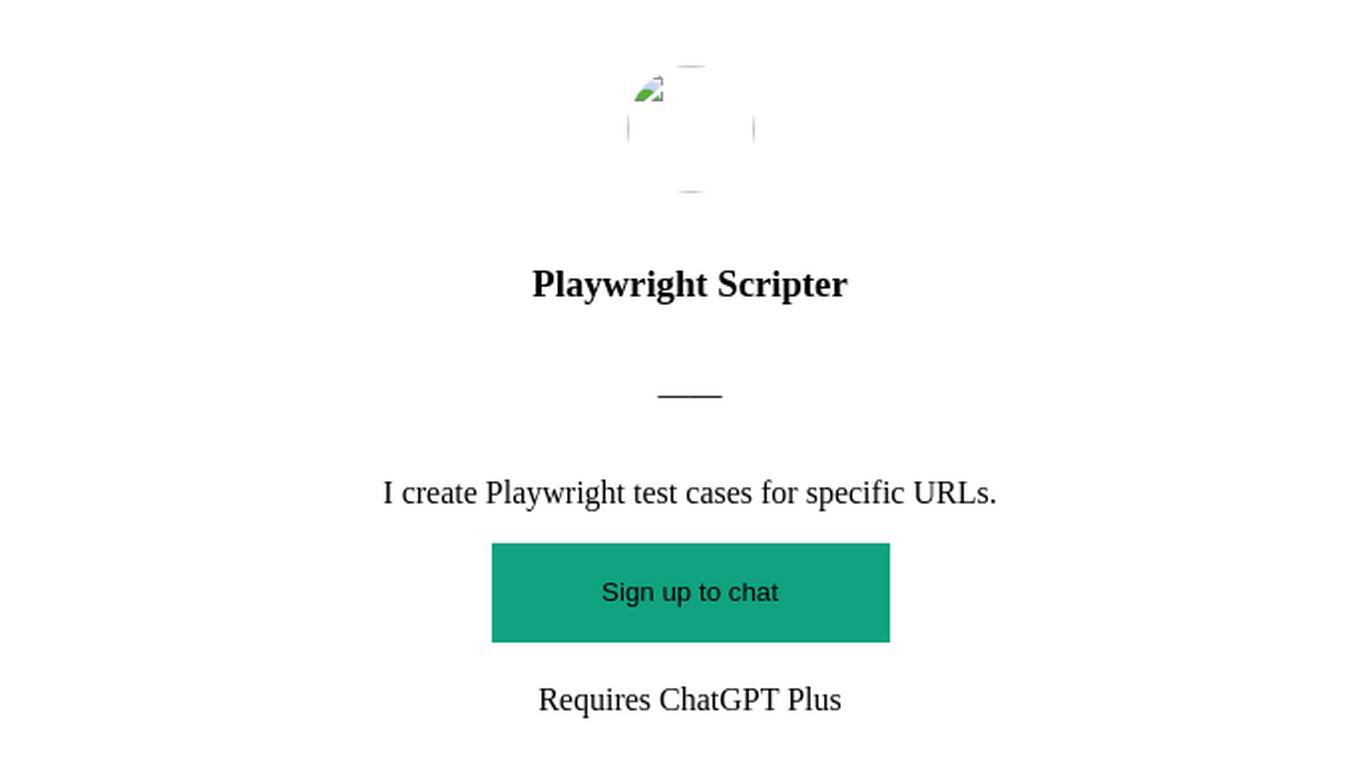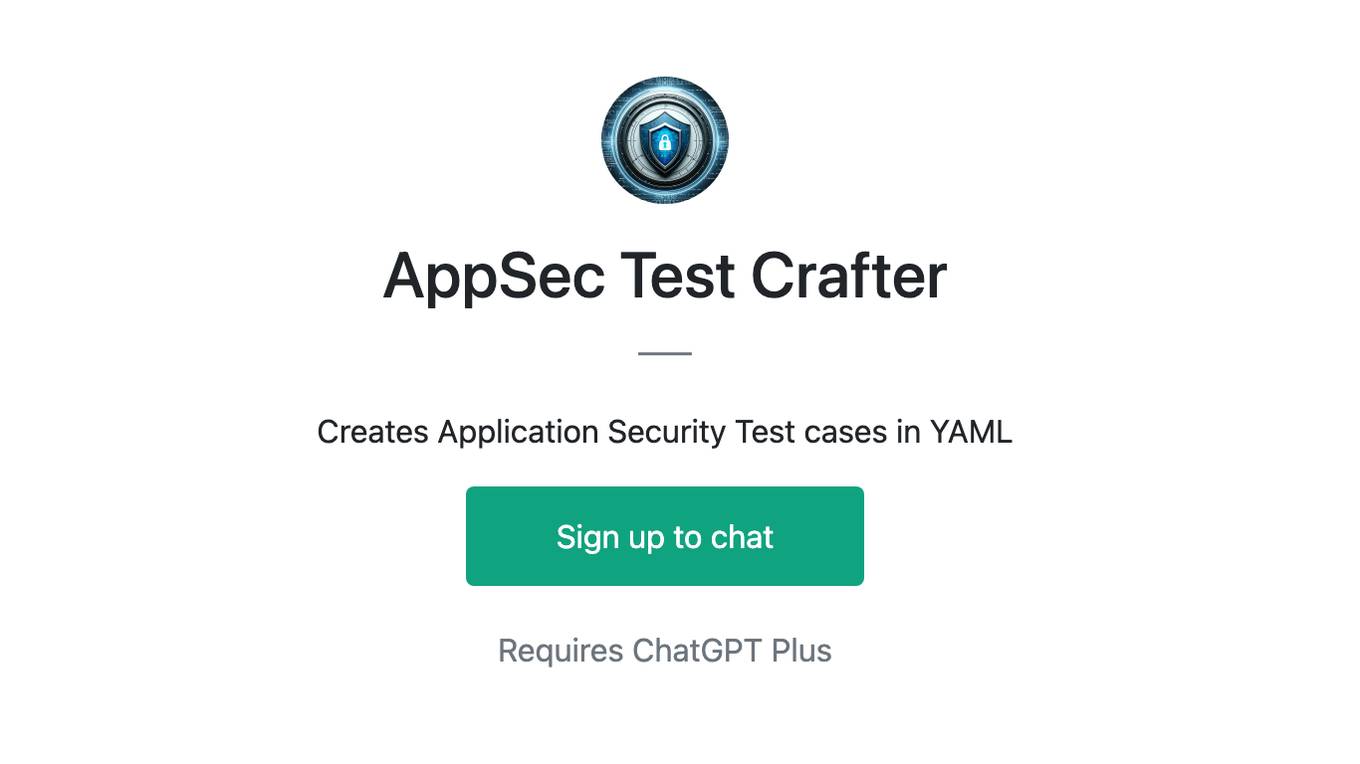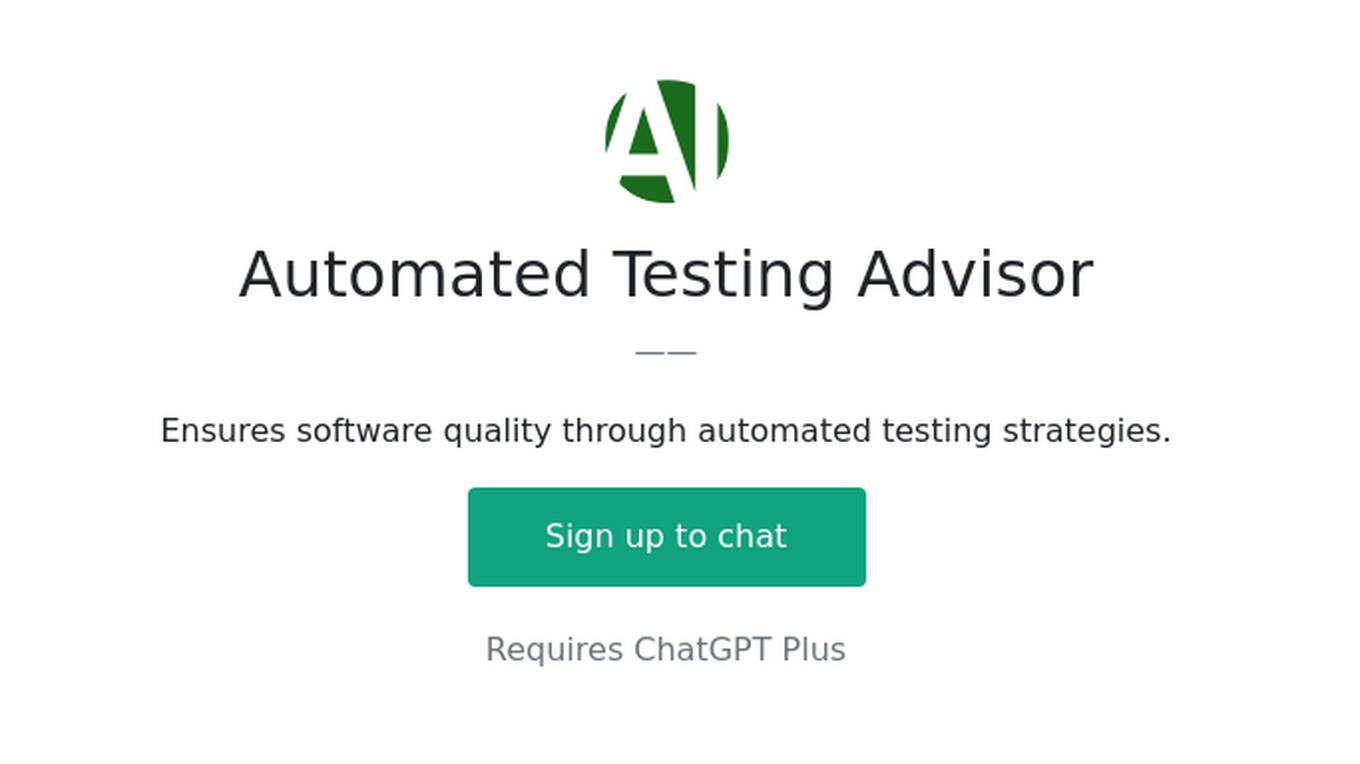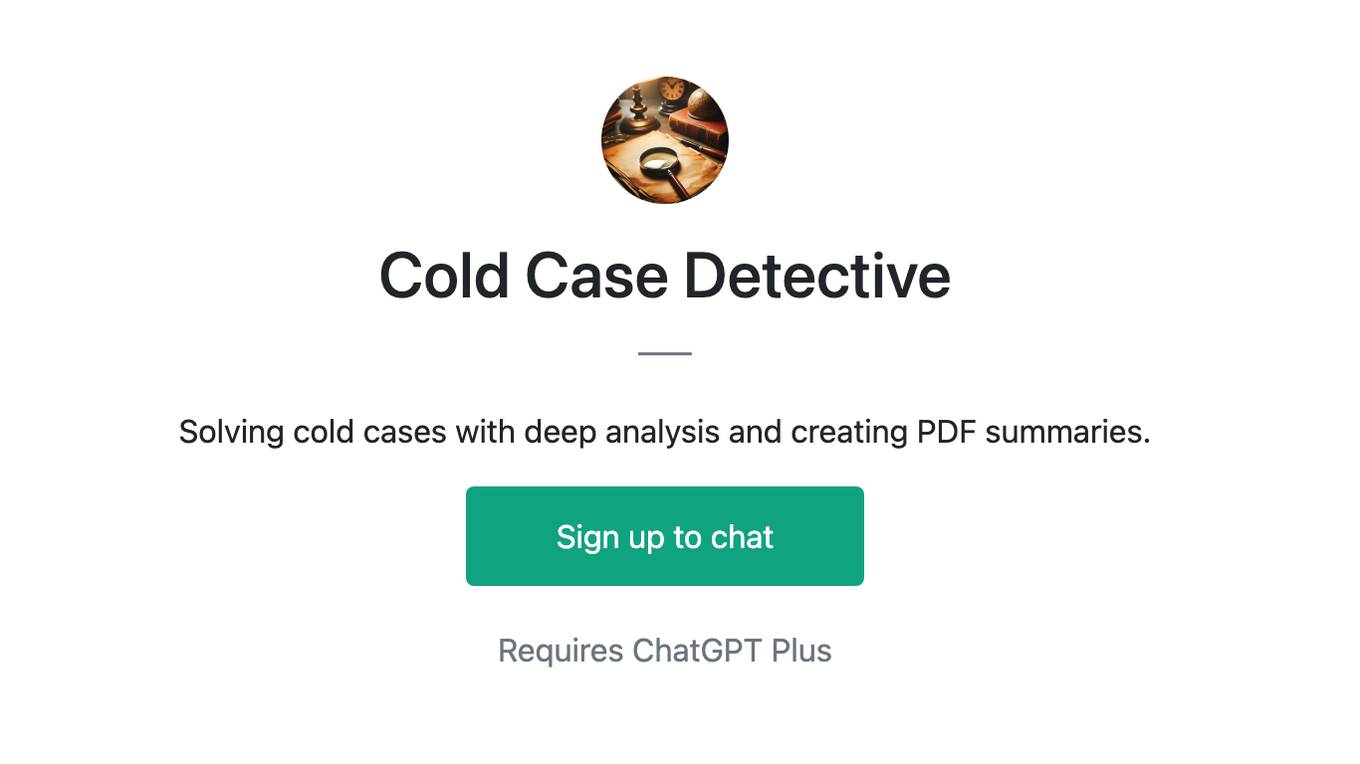Best AI tools for< Create Cakes >
20 - AI tool Sites
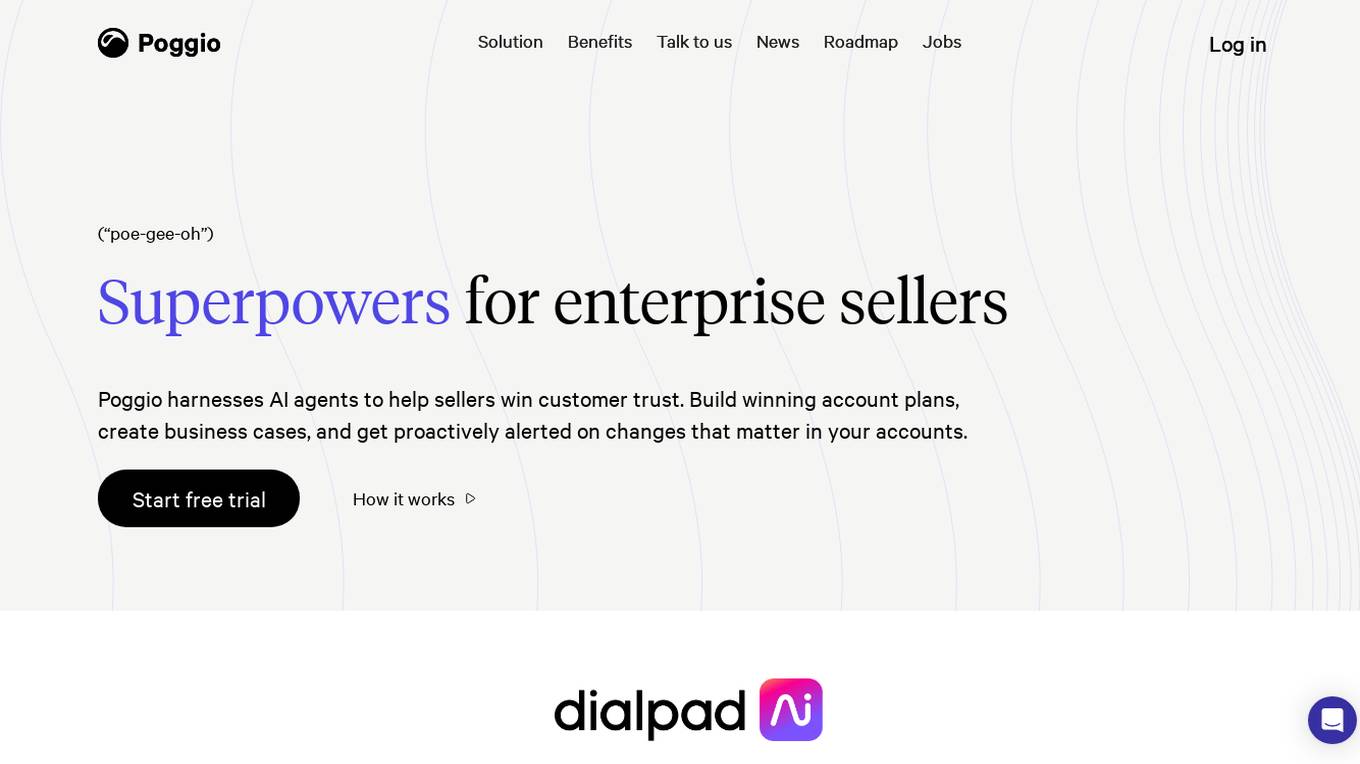
Poggio.io
Poggio.io is an AI-powered solution designed for enterprise sellers to enhance their sales process. By harnessing AI agents, Poggio helps sellers build winning account plans, create business cases, and stay informed about important changes in their accounts. The platform enables users to conduct expert-level account research in seconds, tailor messaging based on value propositions, and save time on researching to focus more on selling. Poggio also assists in generating account plans quickly, staying prepared for critical interactions, and building meaningful connections with prospects.
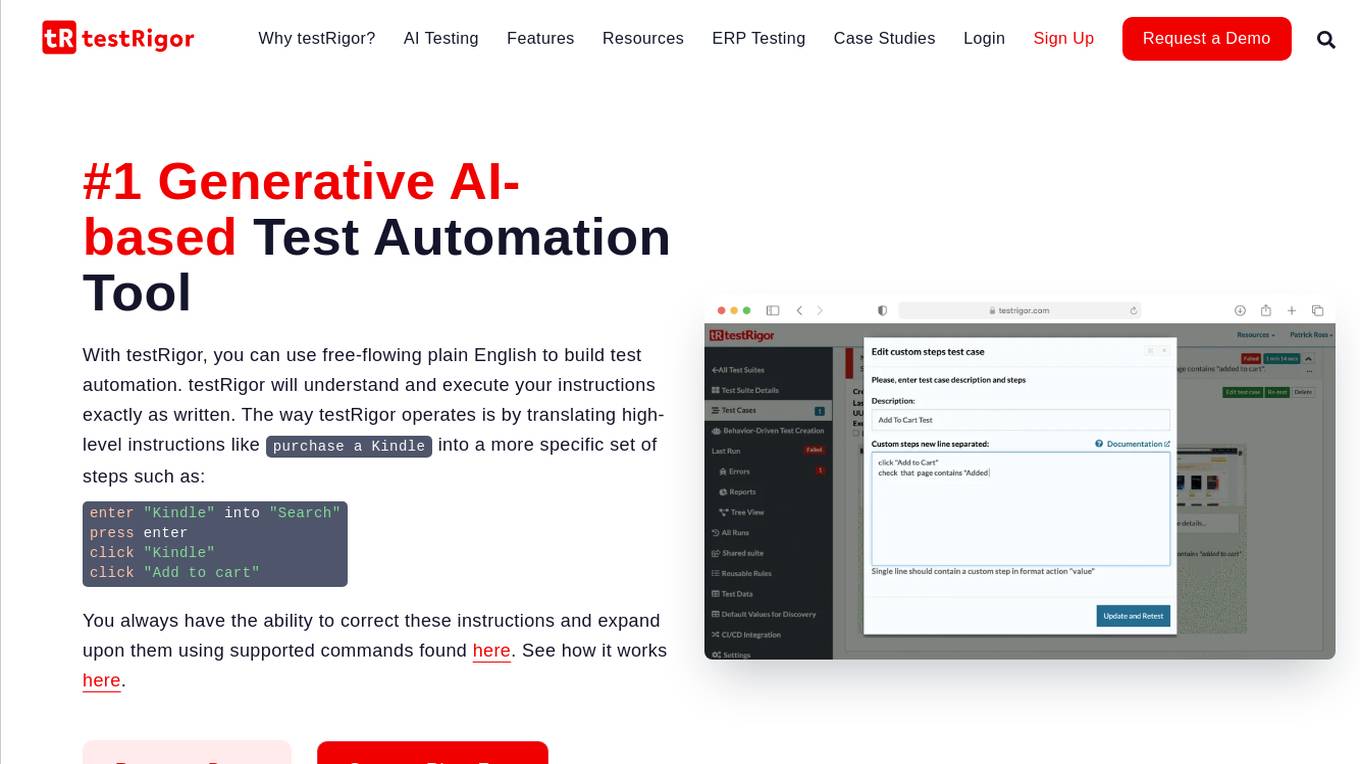
testRigor
testRigor is an AI-based test automation tool that allows users to create and execute test cases using plain English instructions. It leverages generative AI in software testing to automate test creation and maintenance, offering features such as no code/codeless testing, web, mobile, and desktop testing, Salesforce automation, and accessibility testing. With testRigor, users can achieve test coverage faster and with minimal maintenance, enabling organizations to reallocate QA engineers to build API tests and increase test coverage significantly. The tool is designed to simplify test automation, reduce QA headaches, and improve productivity by streamlining the testing process.
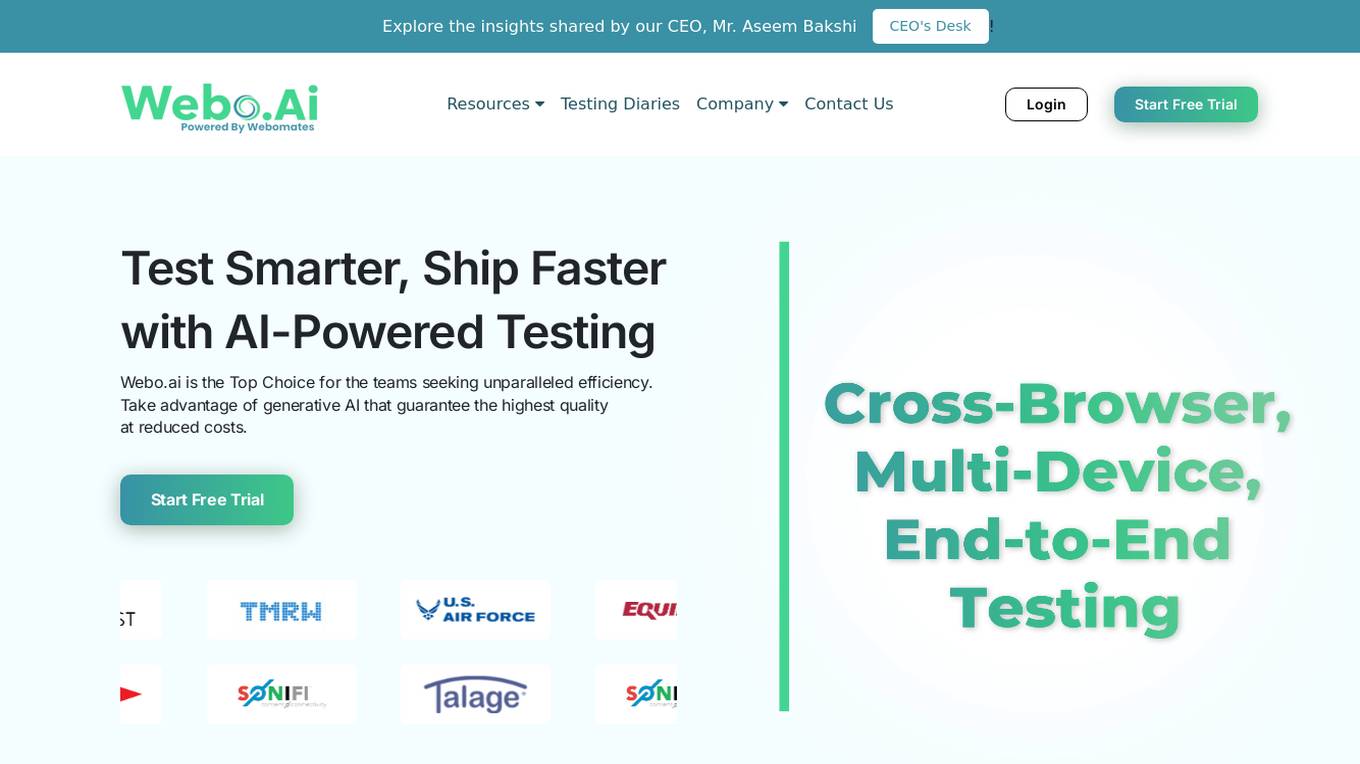
Webo.AI
Webo.AI is a test automation platform powered by AI that offers a smarter and faster way to conduct testing. It provides generative AI for tailored test cases, AI-powered automation, predictive analysis, and patented AiHealing for test maintenance. Webo.AI aims to reduce test time, production defects, and QA costs while increasing release velocity and software quality. The platform is designed to cater to startups and offers comprehensive test coverage with human-readable AI-generated test cases.
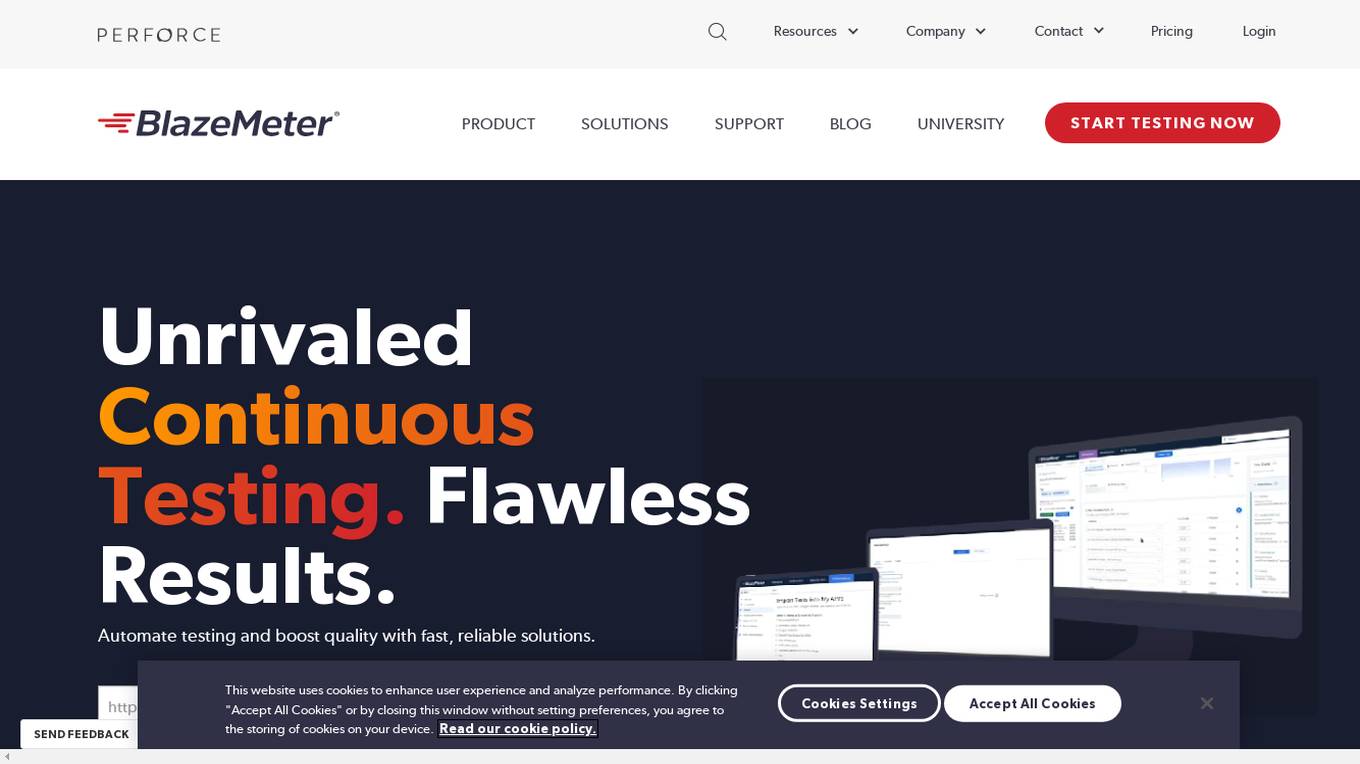
BlazeMeter
BlazeMeter by Perforce is an AI-powered continuous testing platform designed to automate testing processes and enhance software quality. It offers effortless test creation, seamless test execution, instant issue analysis, and self-sustaining maintenance. BlazeMeter provides a comprehensive solution for performance, functional, scriptless, API testing, and monitoring, along with test data and service virtualization. The platform enables teams to speed up digital transformation, shift quality left, and streamline DevOps practices. With AI analytics, scriptless test creation, and UX testing capabilities, BlazeMeter empowers users to drive innovation, accuracy, and speed in their test automation efforts.
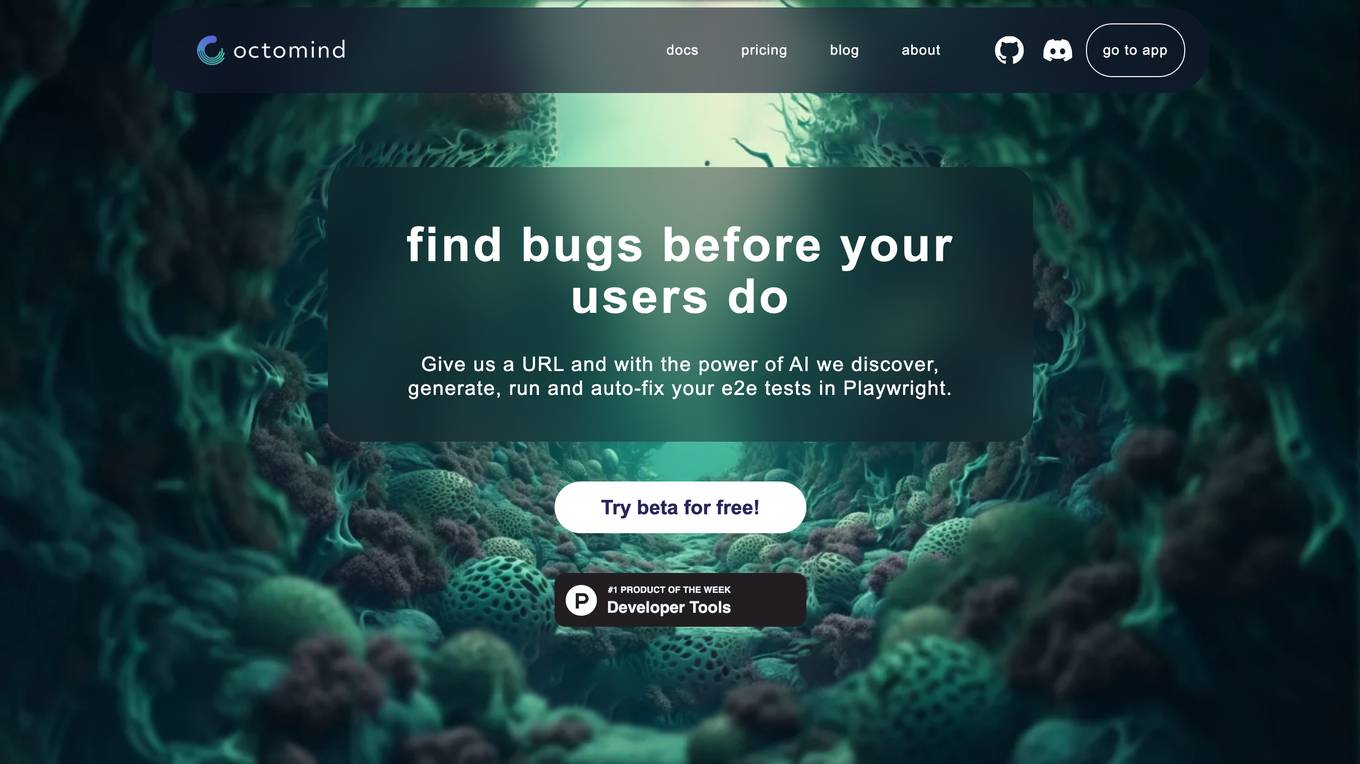
Octomind
Octomind is an AI-powered QA platform that provides automated end-to-end testing for web applications. It offers features such as self-healing tests, visual debugging, and stable test runs. Octomind is designed for early-stage and fast-growing SaaS or AI startups with small engineering teams, aiming to improve product quality and speed by catching regressions before they reach users. The platform is trusted by thousands of engineering teams worldwide and is SOC-2 certified, ensuring privacy and security.

Fluint
Fluint is an AI-powered tool designed to help sales professionals create compelling business cases and streamline the sales process. It offers features such as call recording, collaborative document editing, data-backed suggestions, and automated playbooks. Fluint aims to close the execution gap in the sales process by providing value-based content and enabling champions to sell internally. The tool helps users generate executive summaries, discovery suggestions, and deal briefs efficiently, leading to increased win rates and faster deal reviews.
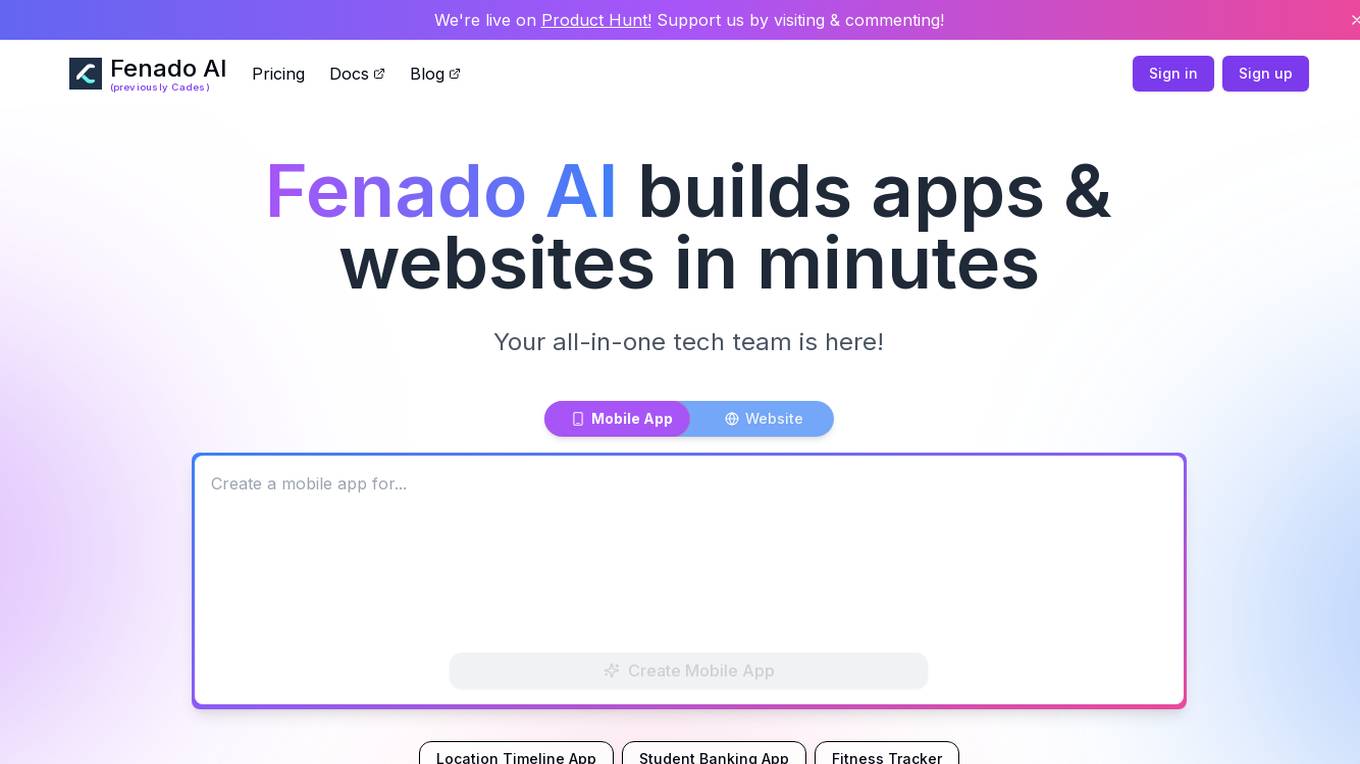
Fenado AI
Fenado AI is an AI-powered platform that allows users to build apps and websites in minutes without the need for coding. Users can describe their ideas to the AI, chat with it to refine, and then publish with just one click. The platform offers instant prototypes, AI-powered creation, design assistance, business dashboard, and scalability for users to launch their startups quickly and efficiently.
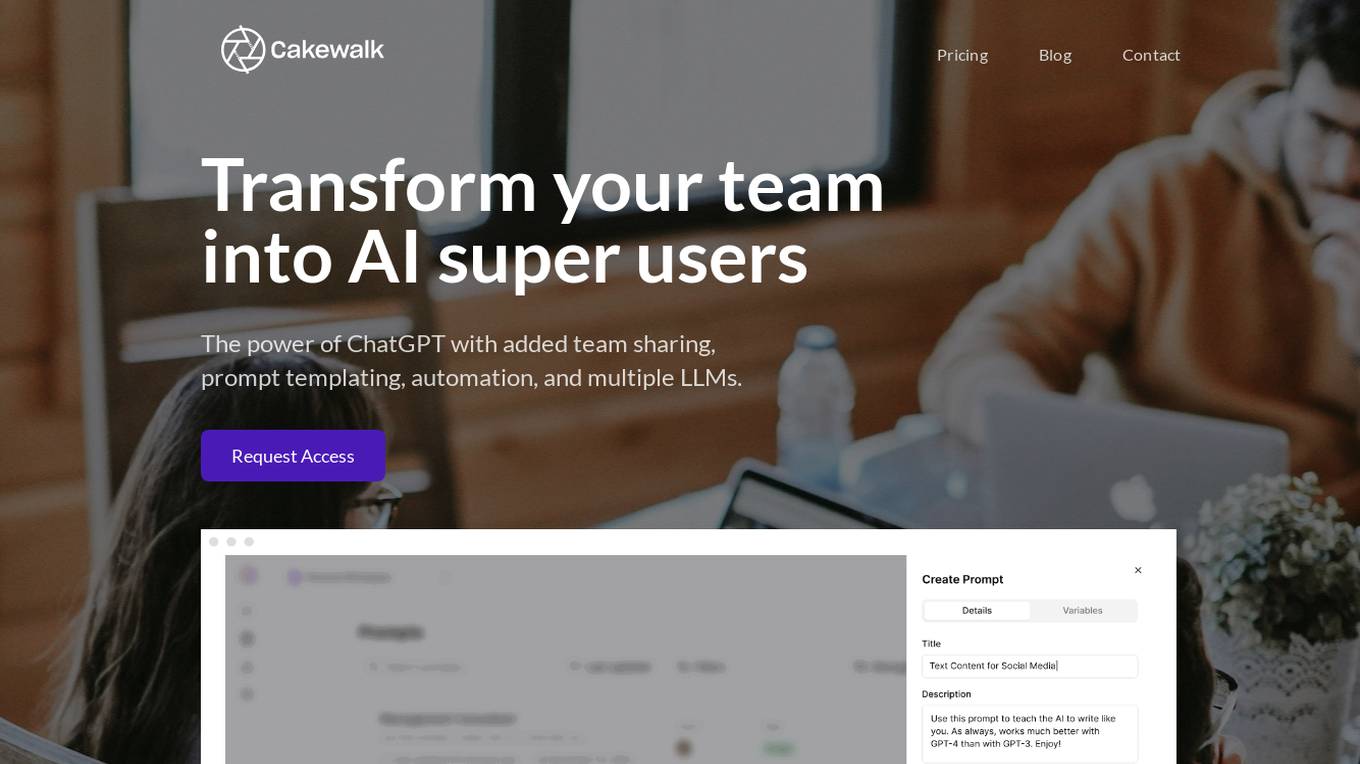
Cakewalk AI
Cakewalk AI is an AI-powered platform designed to enhance team productivity by leveraging the power of ChatGPT and automation tools. It offers features such as team workspaces, prompt libraries, automation with prebuilt templates, and the ability to combine documents, images, and URLs. Users can automate tasks like updating product roadmaps, creating user personas, evaluating resumes, and more. Cakewalk AI aims to empower teams across various departments like Product, HR, Marketing, and Legal to streamline their workflows and improve efficiency.
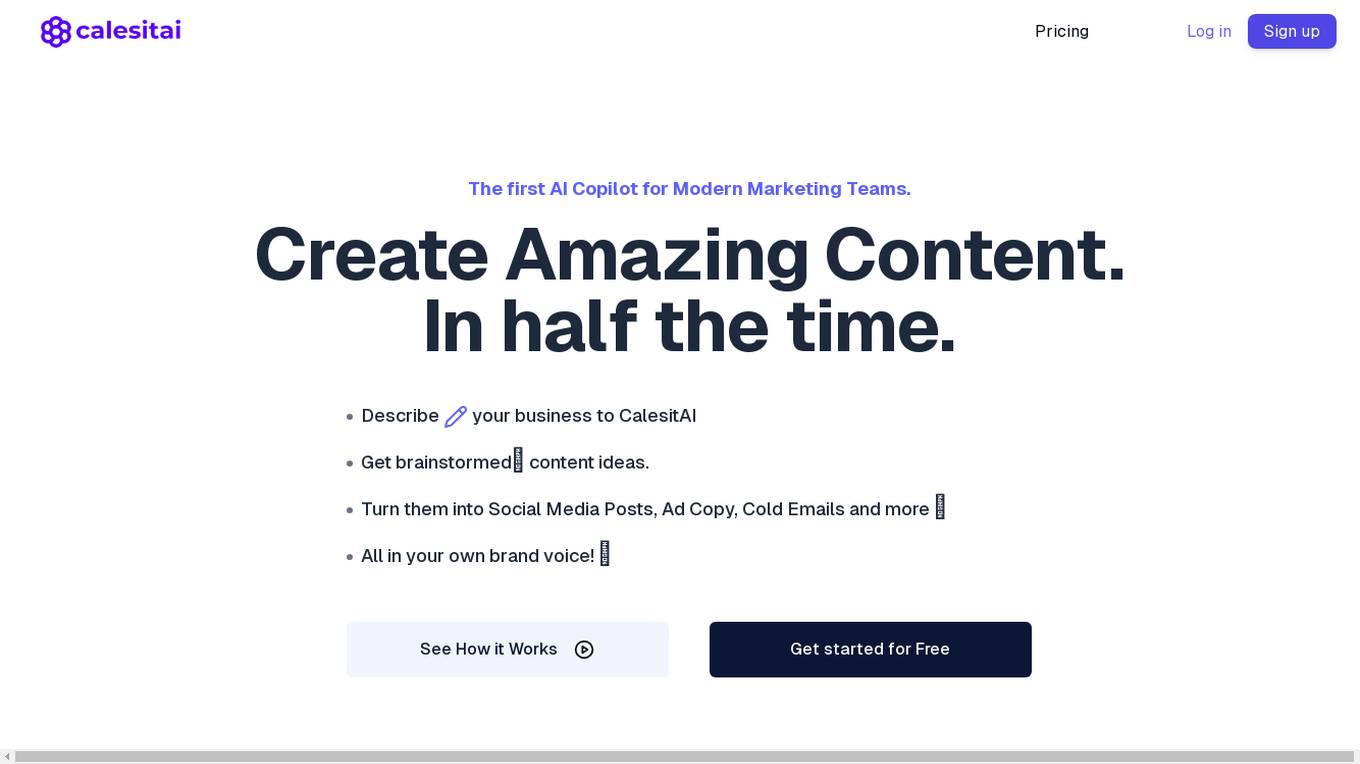
CalesitAI
CalesitAI is an AI-powered content creation tool that helps marketing teams create high-quality content in half the time. With CalesitAI, you can generate brainstormed content ideas, turn them into social media posts, ad copy, cold emails, and more, all in your own brand voice. CalesitAI also offers a variety of features to help you customize your content, including pre-made templates, a carousel editor, and auto-resizing. With CalesitAI, you can focus on what you do best and leave the grunt work to us.
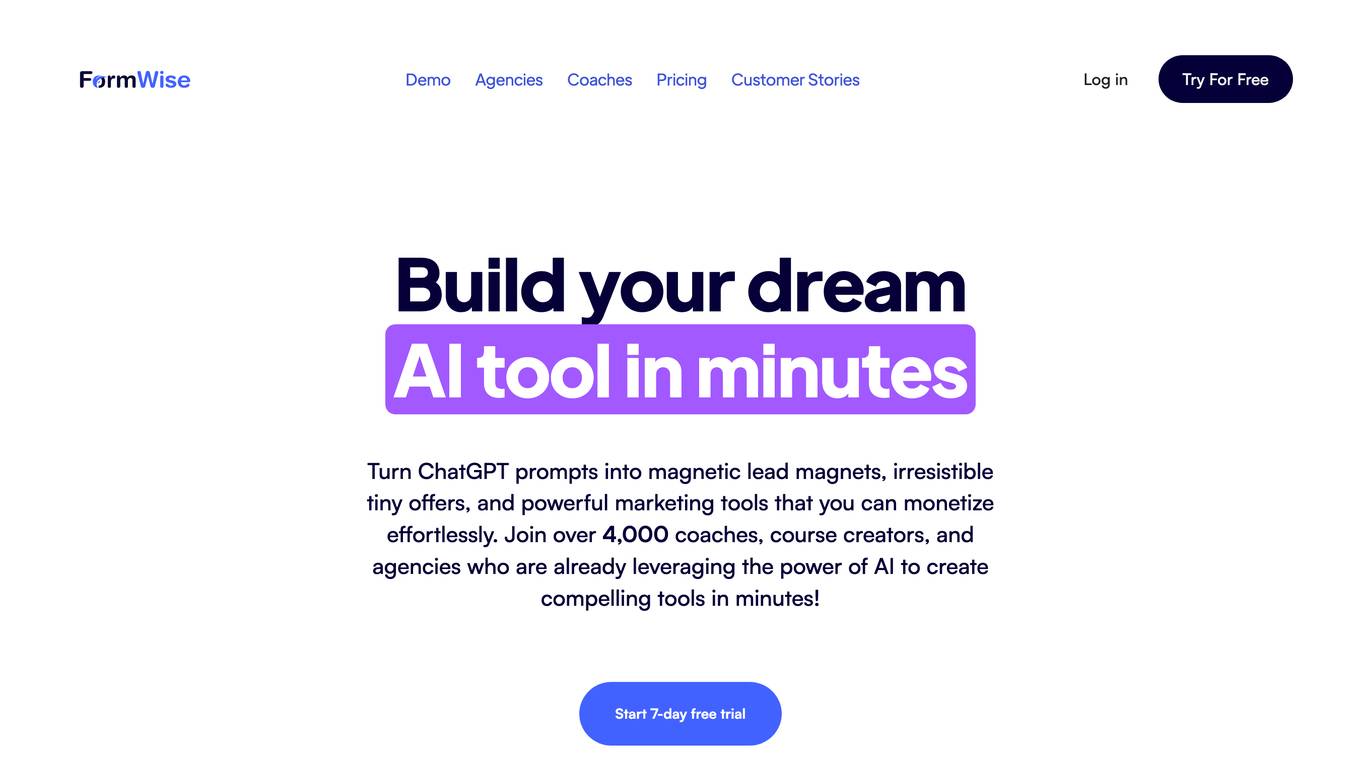
FormWise.AI
FormWise.AI is a no-code platform that allows users to create and embed white-label AI tools. With FormWise.AI, users can turn popular ChatGPT prompts into lead magnets, tiny offers, and marketing tools that they can monetize without coding. FormWise.AI also offers a variety of templates and integrations to help users get started quickly and easily.
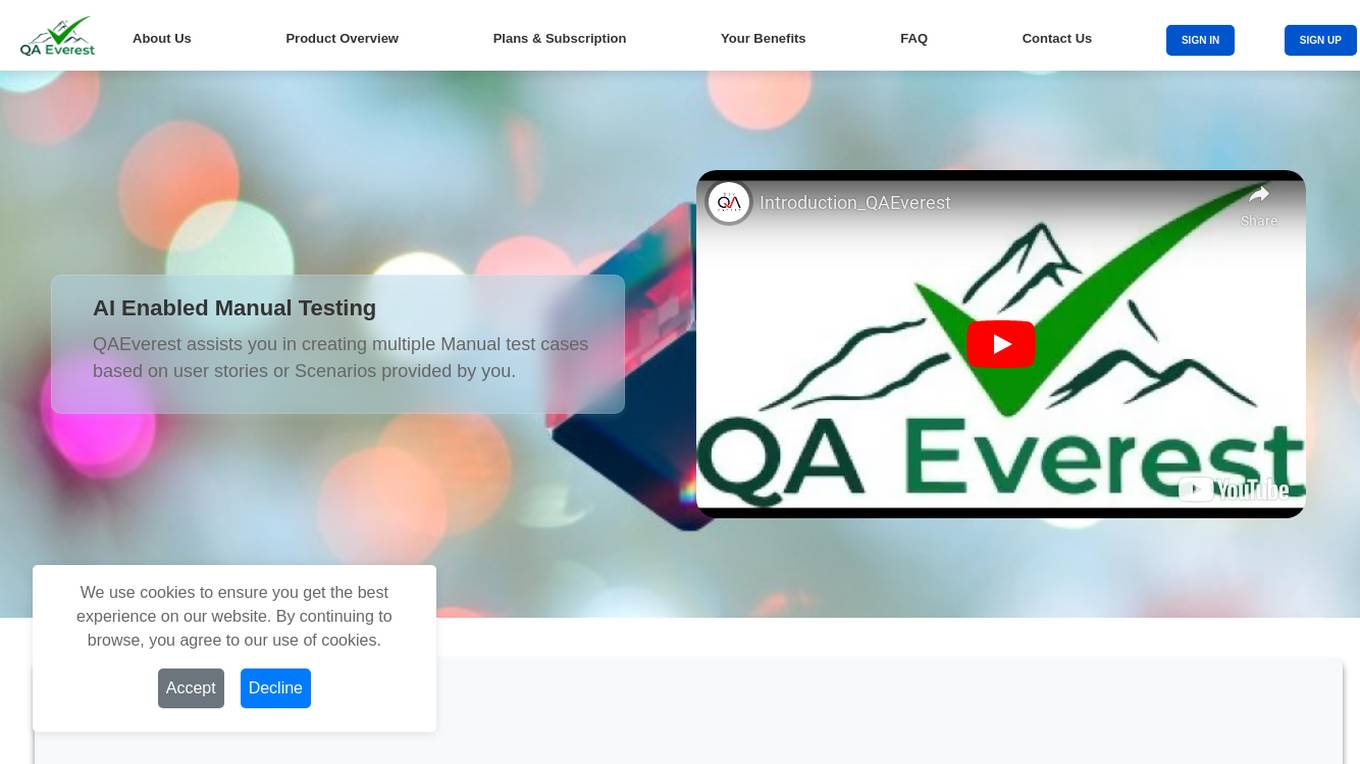
AI Generated Test Cases
AI Generated Test Cases is an innovative tool that leverages artificial intelligence to automatically generate test cases for software applications. By utilizing advanced algorithms and machine learning techniques, this tool can efficiently create a comprehensive set of test scenarios to ensure the quality and reliability of software products. With AI Generated Test Cases, software development teams can save time and effort in the testing phase, leading to faster release cycles and improved overall productivity.
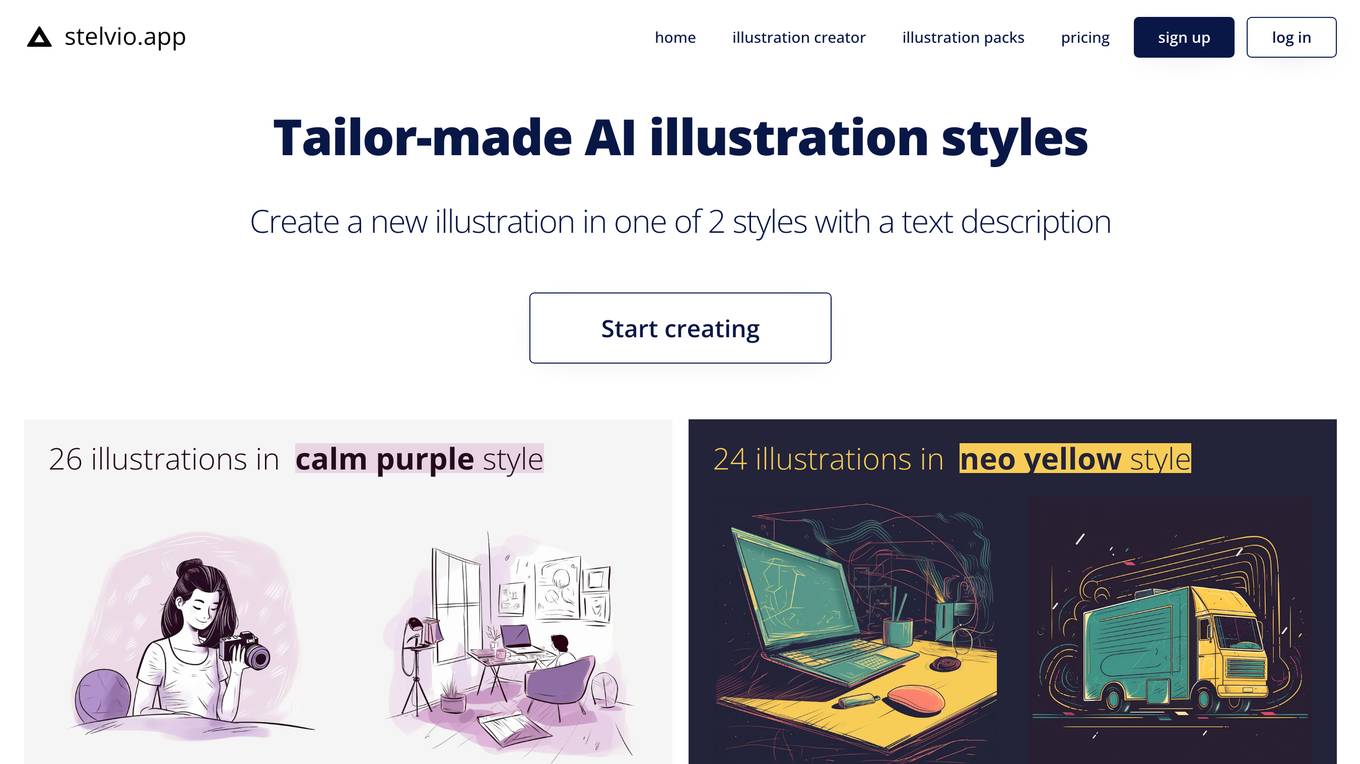
Bubble
Bubble is a visual programming platform that allows users to build web applications without needing to write code. It offers a range of features for designing, developing, and deploying applications, including data management, logic creation, collaboration tools, and security features. Bubble provides a user-friendly interface for creating custom applications tailored to specific needs, making it an ideal solution for individuals and businesses looking to create web applications quickly and efficiently.
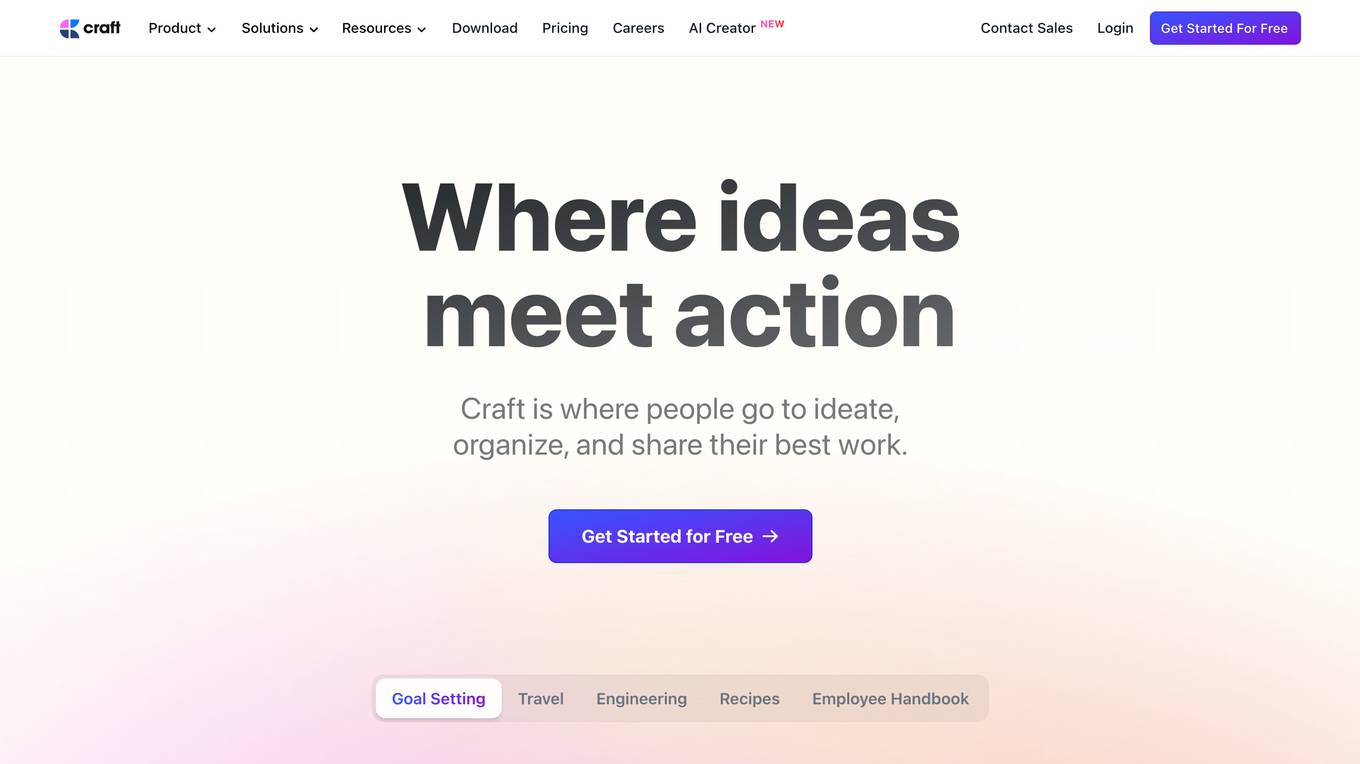
Craft
Craft is a versatile and intuitive docs and notes editor designed to help users capture ideas, organize tasks, and bring big ideas to life. It offers a seamless writing experience across all devices, allowing users to transform quick notes into polished documents. Craft also provides features like templates, whiteboards, and AI-powered writing assistance. Users from various professions such as writers, educators, students, producers, and photographers utilize Craft for a wide range of tasks, from show notes and project outlines to shoot plans and travel itineraries.
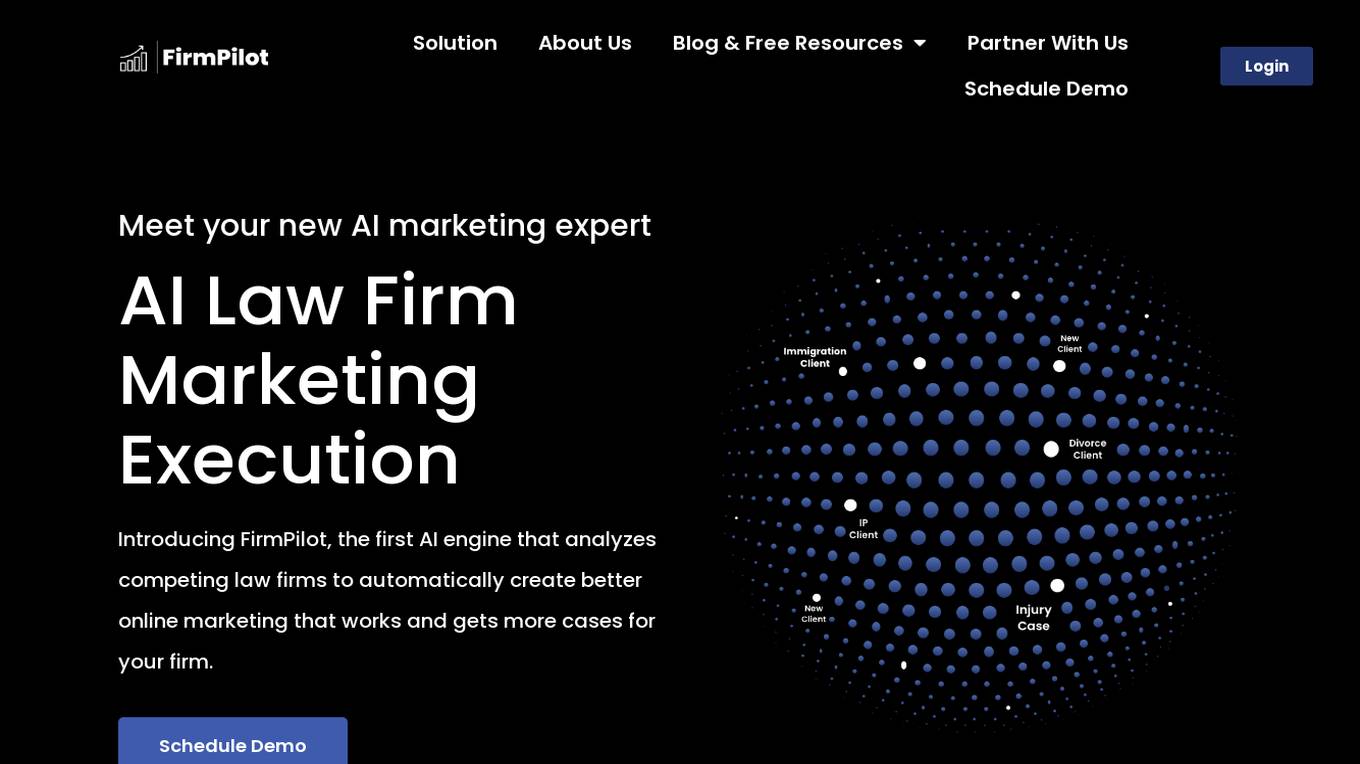
FirmPilot
FirmPilot is an AI Law Firm Marketing solution that helps law firms generate more leads and clients through AI-driven online marketing strategies. It automates the process of analyzing competitors, creating high-quality marketing content, and optimizing SEO and PPC ads to improve visibility and performance. FirmPilot offers real-time insights into lead generation tactics and is trusted by fast-growing law firms for its effectiveness and ease of use.
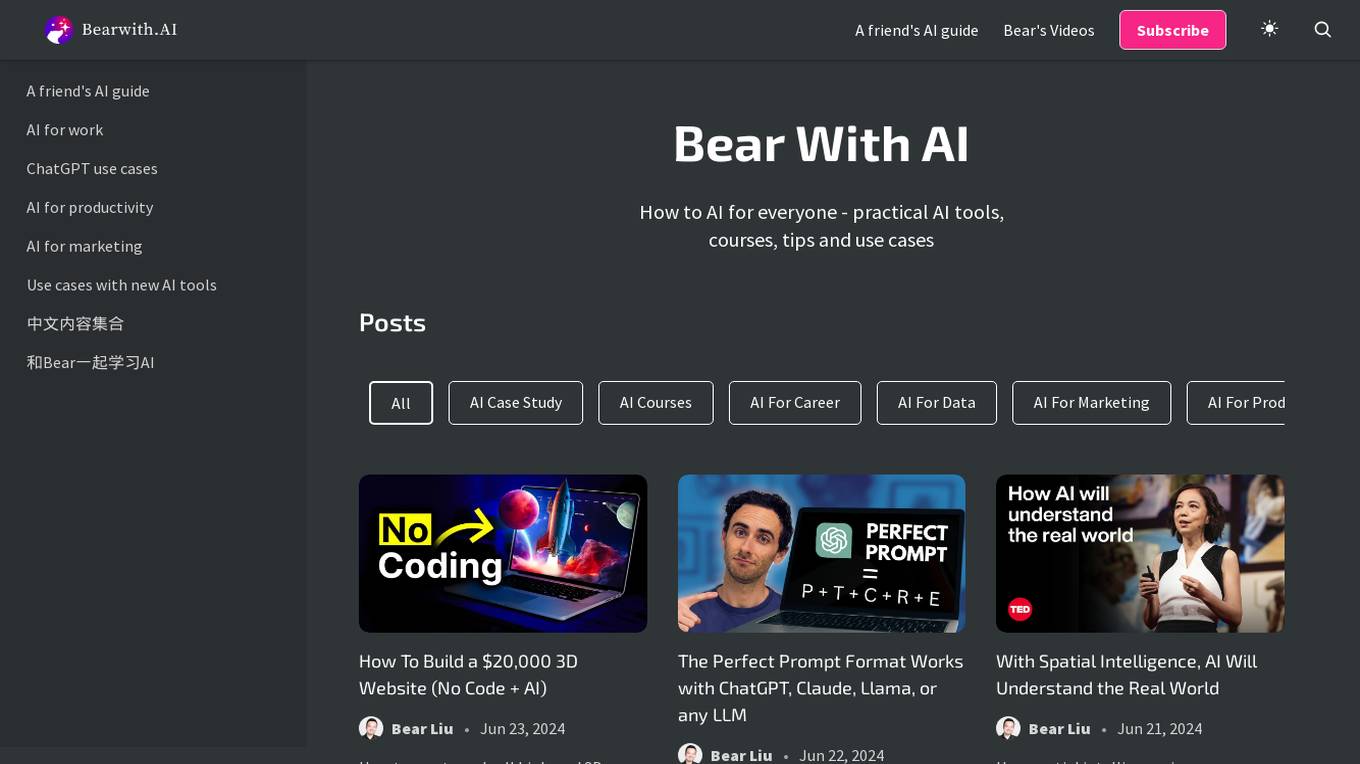
Bear With AI
Bear With AI is a platform offering practical AI tools, courses, tips, and use cases for individuals interested in learning and utilizing artificial intelligence. The website provides insights, case studies, and tutorials on various AI applications, including AI for work, productivity, marketing, and career development. Users can access resources to enhance their AI interactions, create AI-powered solutions, and stay updated on the latest AI trends and tools. Bear With AI aims to empower both tech enthusiasts and non-tech professionals to leverage AI technology effectively in their projects and endeavors.
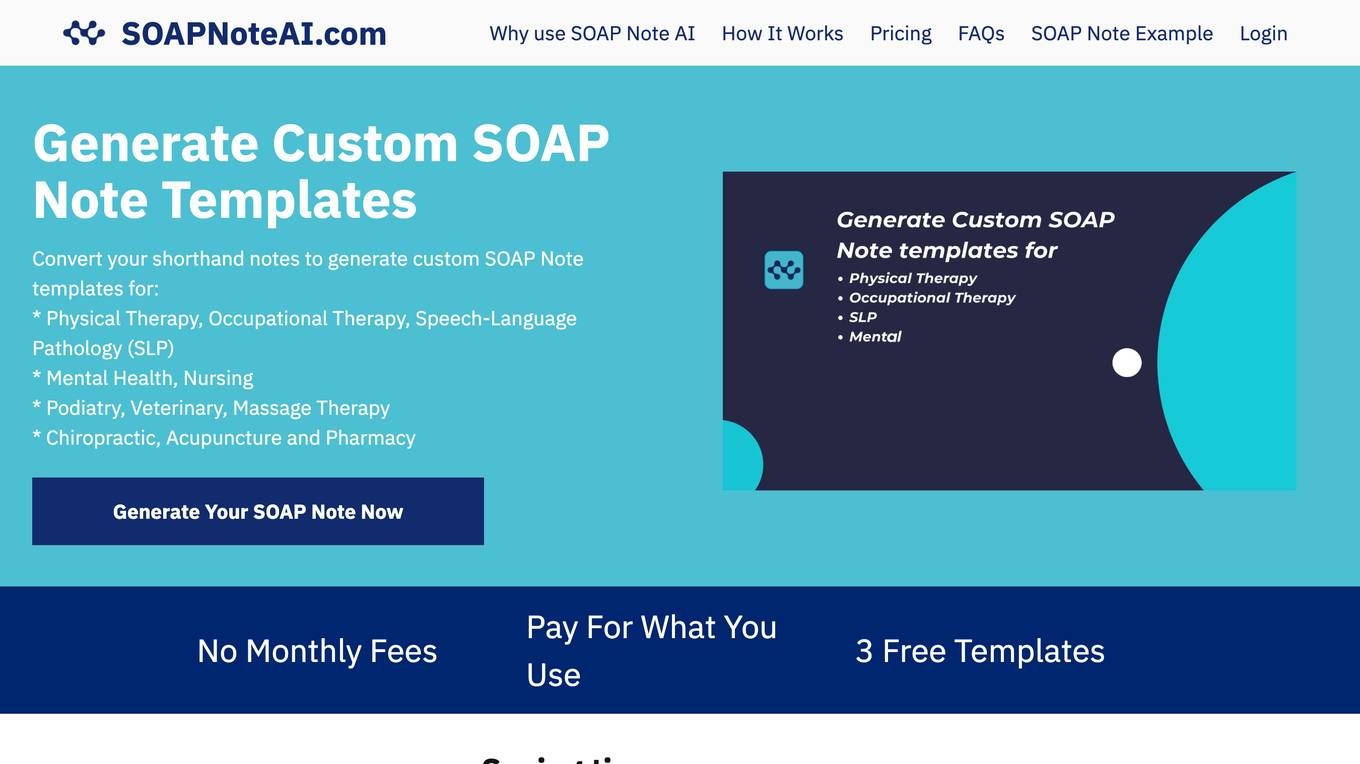
SOAPNoteAI
SOAPNoteAI is an AI-powered SOAP note generator designed for healthcare professionals to streamline the documentation process. The tool allows users to finish SOAP notes in minutes by converting shorthand, dictation, telehealth sessions, and recordings into polished, HIPAA-compliant notes. With features like text to auto note, AI scribe recording, audio dictation, telehealth integration, and audio uploads, SOAPNoteAI helps healthcare providers save time and improve the quality of their clinical notes. The platform maintains the highest standards of professional practice and transparency, catering to various healthcare specialties. Users can choose from flexible pricing plans, subscribe monthly, or opt for pay-as-you-go options. Trusted by over 1,000 healthcare providers, SOAPNoteAI is a game-changer in the healthcare documentation landscape.
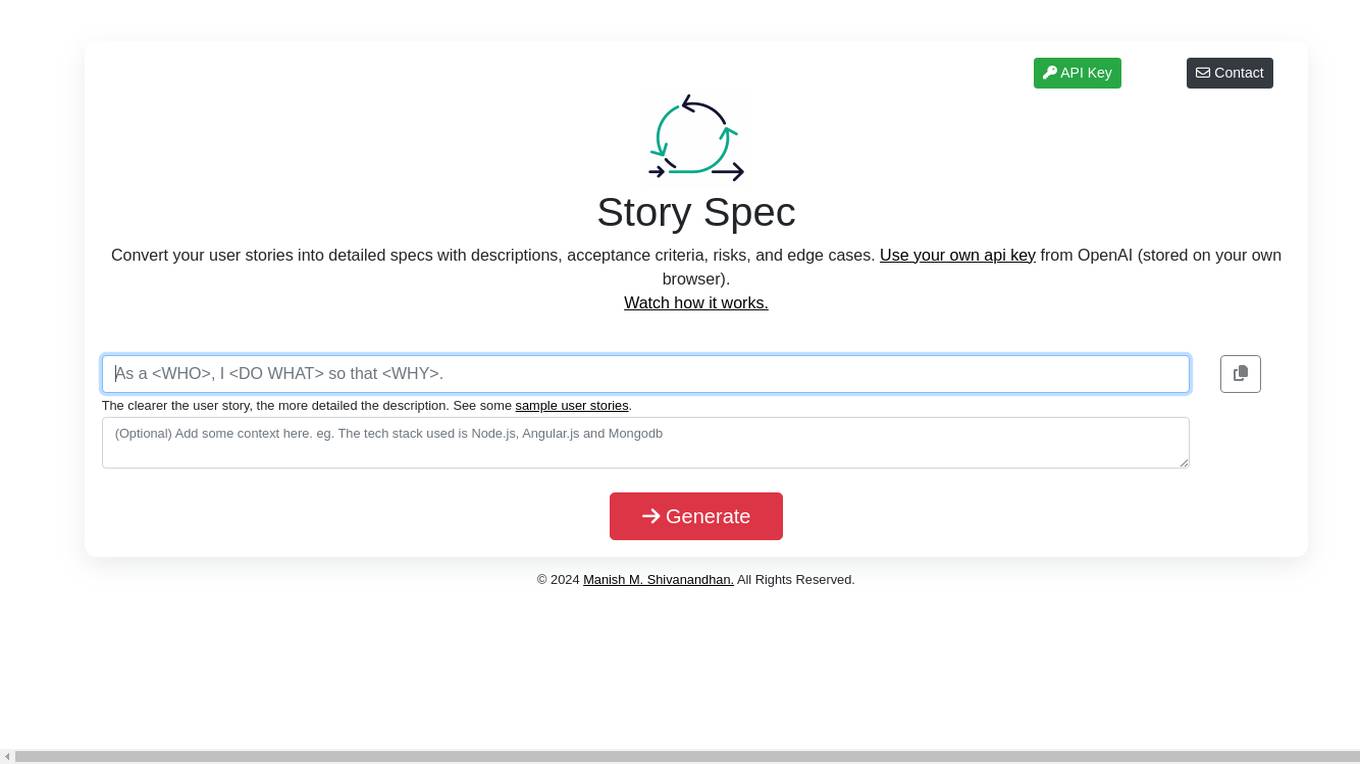
Story Spec
Story Spec is a user story generator API that helps you convert your user stories into detailed specs with descriptions, acceptance criteria, risks, and edge cases. It uses your own API key from OpenAI (stored on your own browser) to generate the specs. The clearer the user story, the more detailed the description. You can also use Story Spec to generate sample user stories.
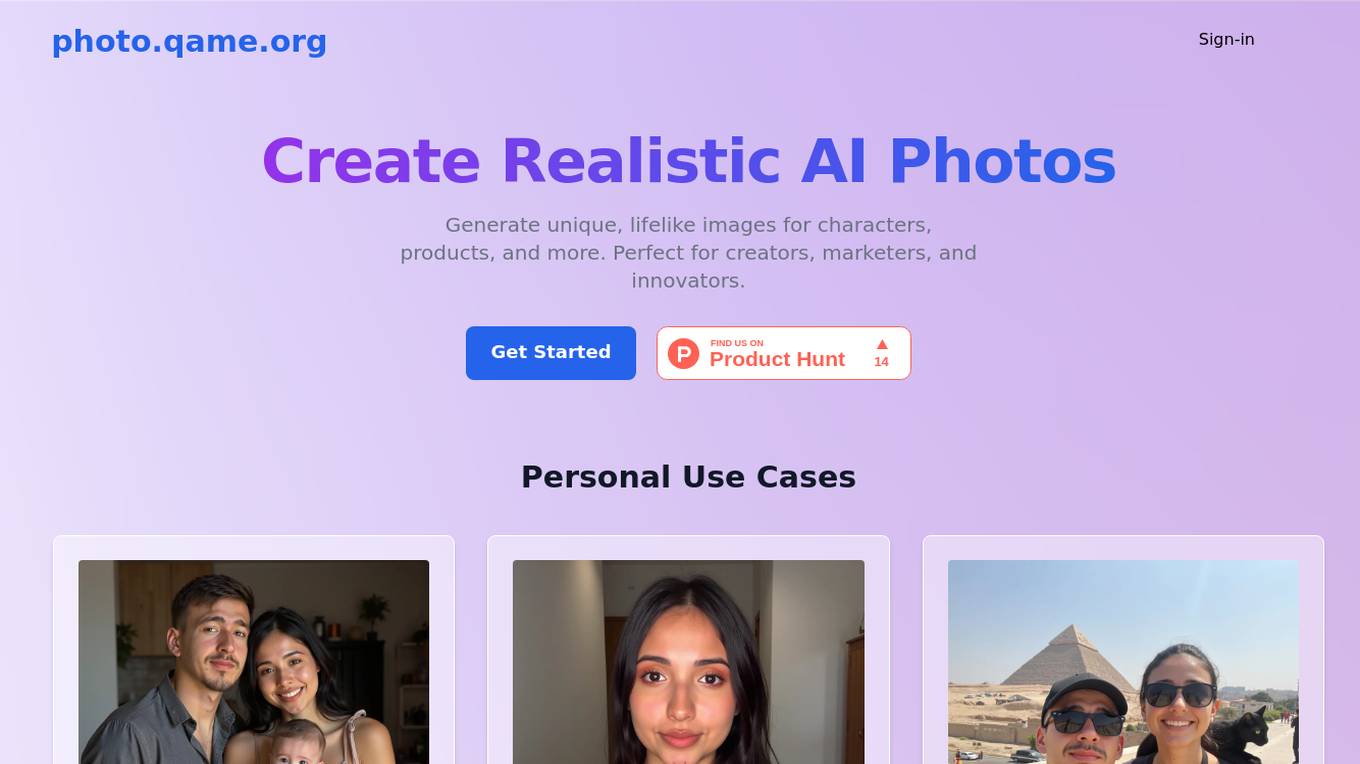
RealPhotoAI
RealPhotoAI is an AI-powered tool that allows users to generate unique and lifelike images for various purposes such as creating realistic photos for characters, products, and more. It caters to both personal and business use cases, offering features like visualizing future baby looks, generating dating app photos, creating travel photos, professional profile photos, fitness transformation photos, pet portraits, product visualization, fashion store showcase, and interior design. Users can upload images, train the AI model, describe the desired photo, and receive custom AI-generated images for their projects or applications at an affordable price.
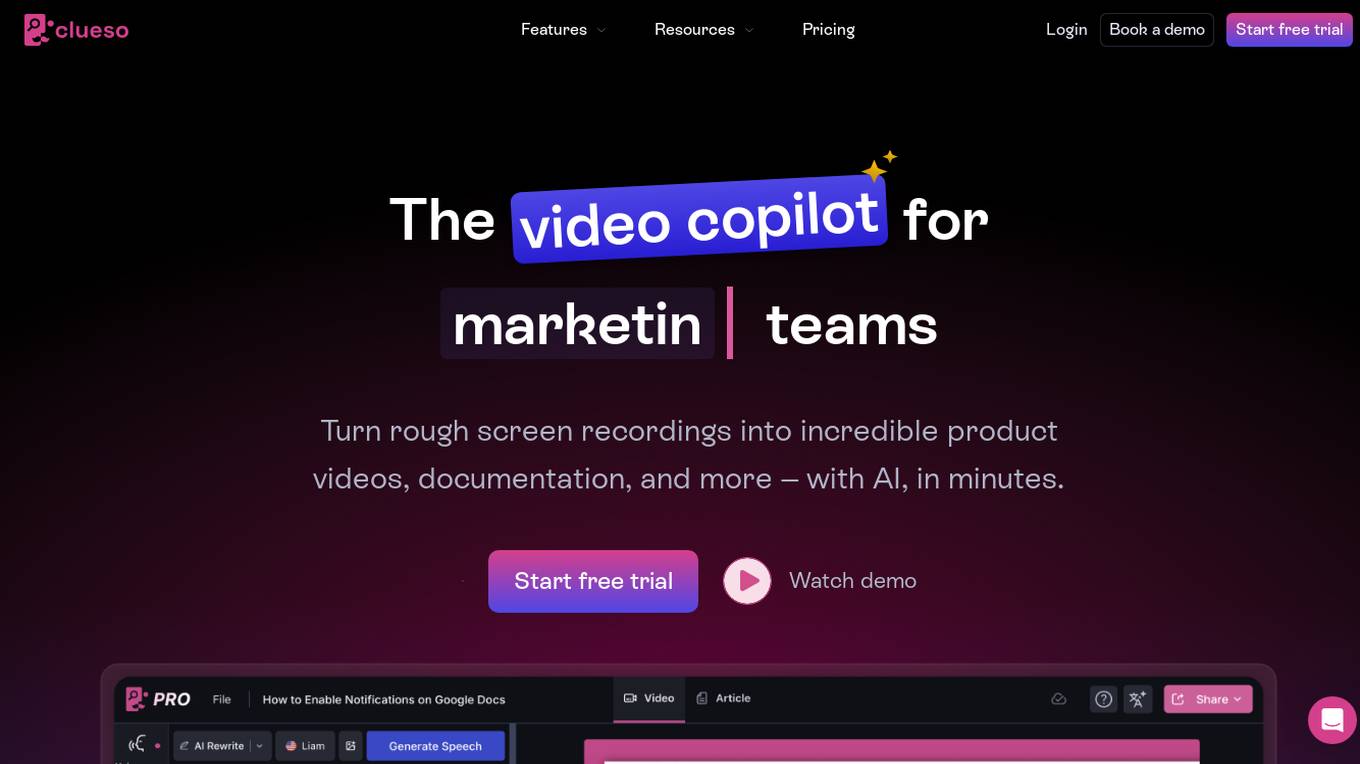
Clueso
The website offers an AI-powered video editing and documentation tool called Clueso. Users can create professional-quality product videos, step-by-step articles, and more with AI assistance. Clueso provides features like one-click translation, AI voiceovers, smart zoom effects, and branding options. It caters to various use cases such as customer education, product marketing, customer support, sales enablement, and learning & development. The tool simplifies the video creation process, making it faster and more efficient for teams to produce engaging content.
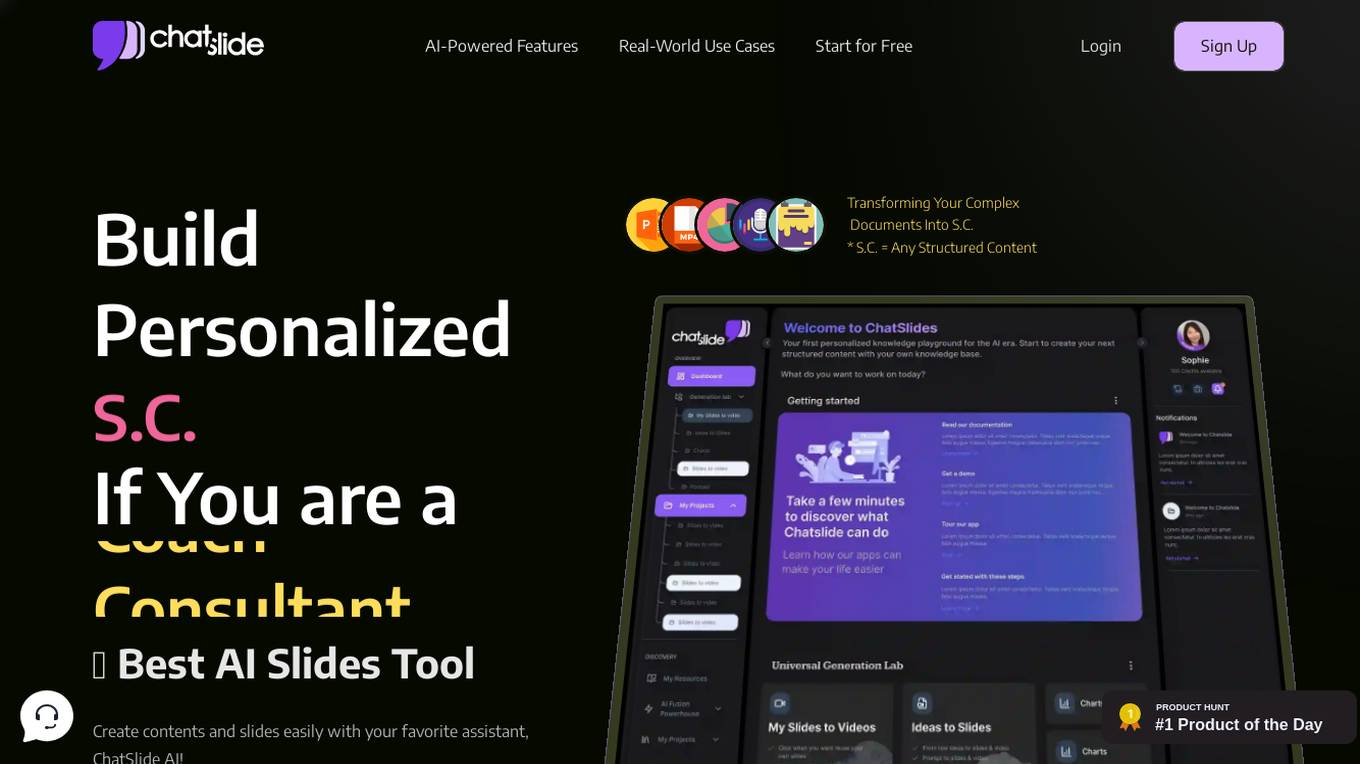
ChatSlide
ChatSlide is an AI workspace for knowledge sharing that offers AI-powered features to create personalized slides, videos, charts, posters, and podcasts. It allows users to easily generate content and slides with the help of ChatSlide AI, supporting multimodal documents. Trusted by users in 170 countries and 29 languages, ChatSlide transforms complex documents into structured content, offering real-world use cases for industries like healthcare. With flexible pricing plans, ChatSlide aims to revolutionize content creation by leveraging AI technology.
0 - Open Source AI Tools
20 - OpenAI Gpts
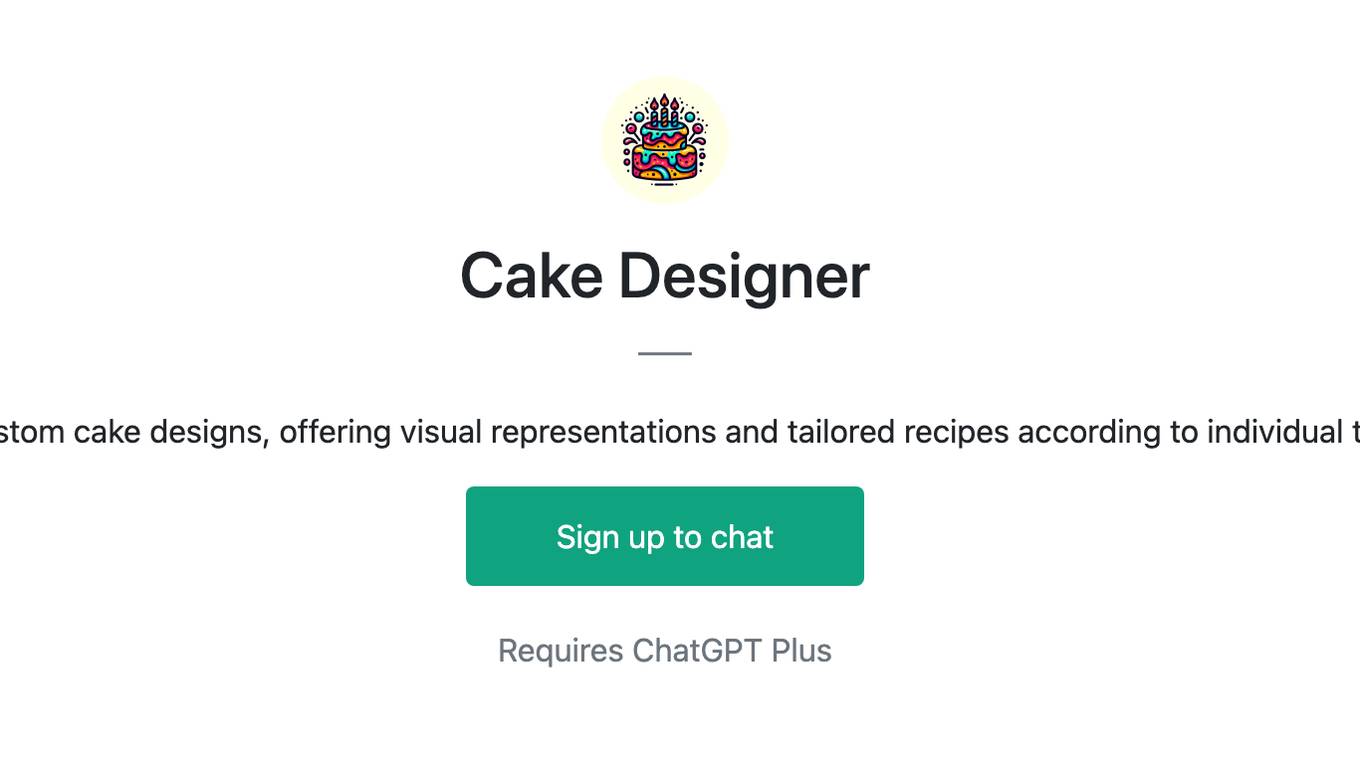
Cake Designer
I specialize in crafting custom cake designs, offering visual representations and tailored recipes according to individual tastes and preferences.
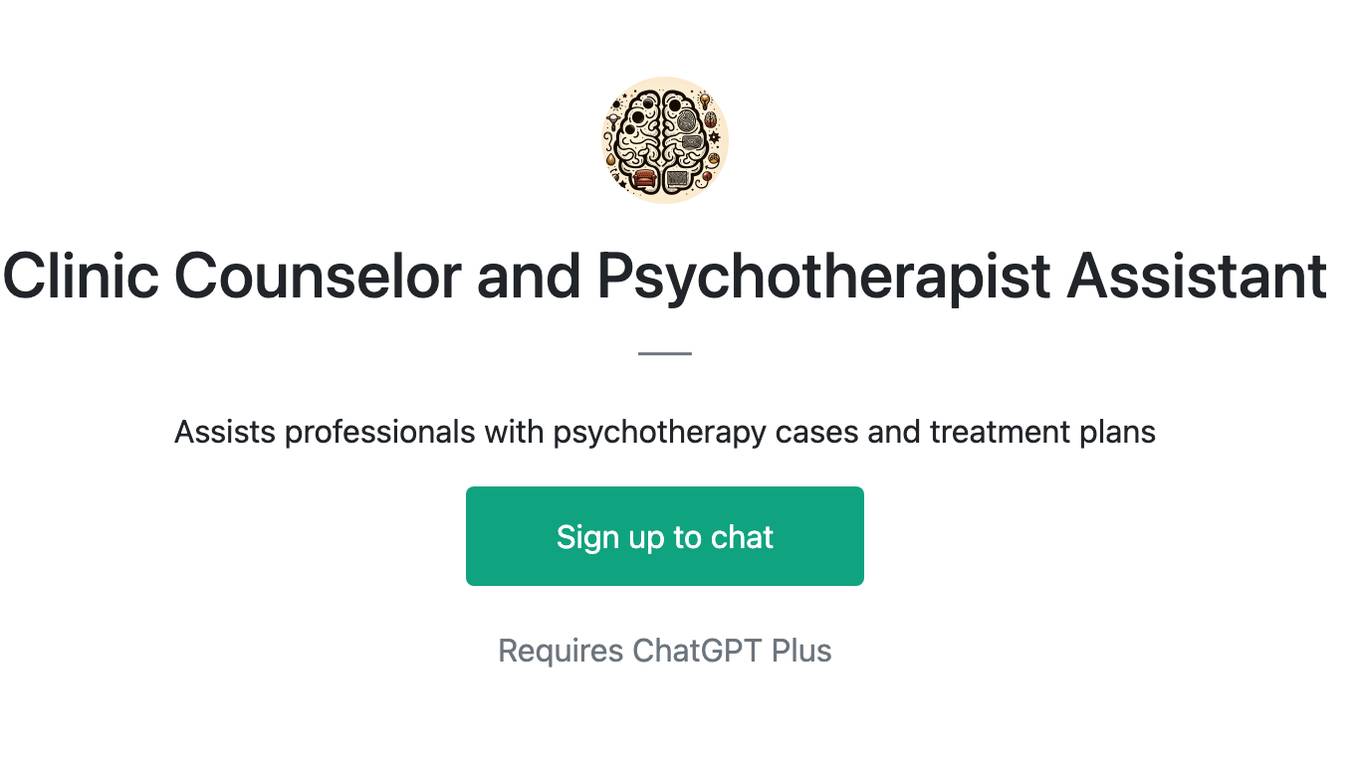
Clinic Counselor and Psychotherapist Assistant
Assists professionals with psychotherapy cases and treatment plans
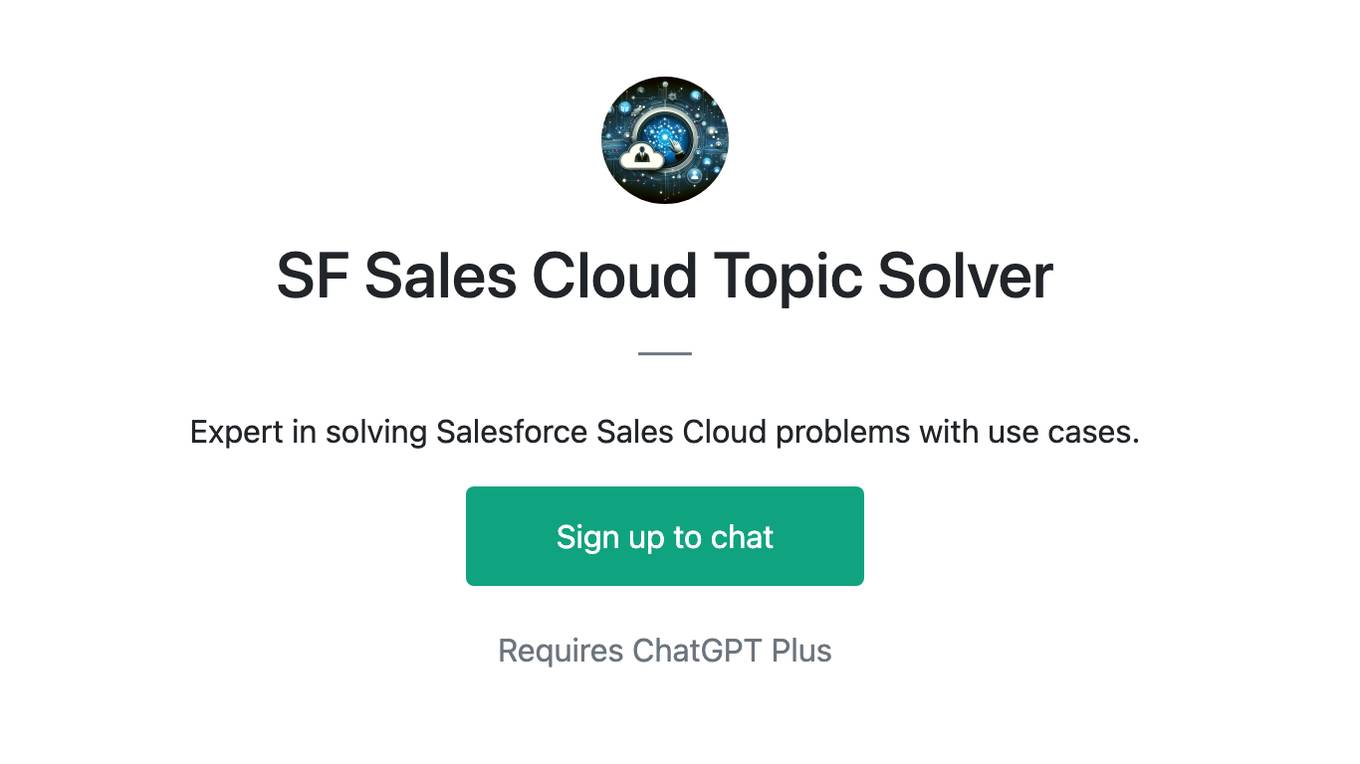
SF Sales Cloud Topic Solver
Expert in solving Salesforce Sales Cloud problems with use cases.
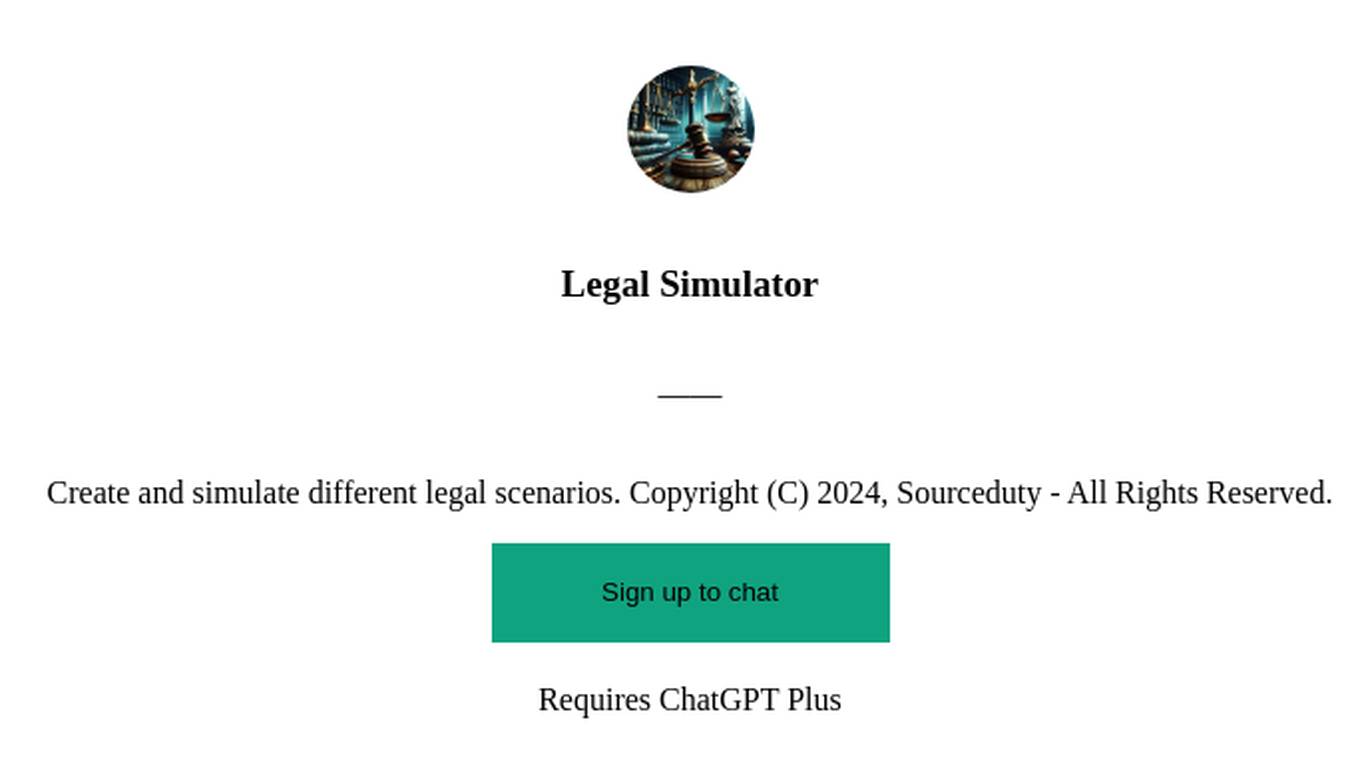
Legal Simulator
Create and simulate different legal scenarios. Copyright (C) 2024, Sourceduty - All Rights Reserved.
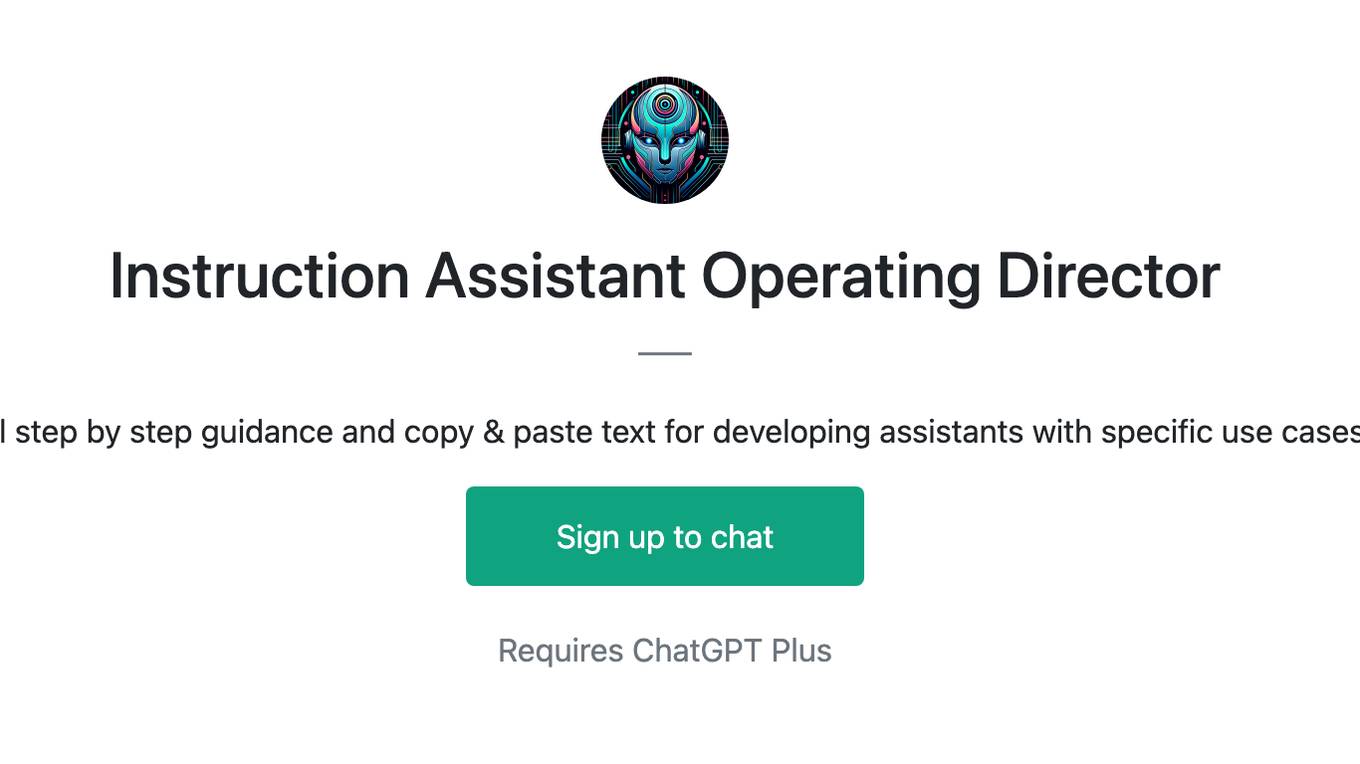
Instruction Assistant Operating Director
Full step by step guidance and copy & paste text for developing assistants with specific use cases.
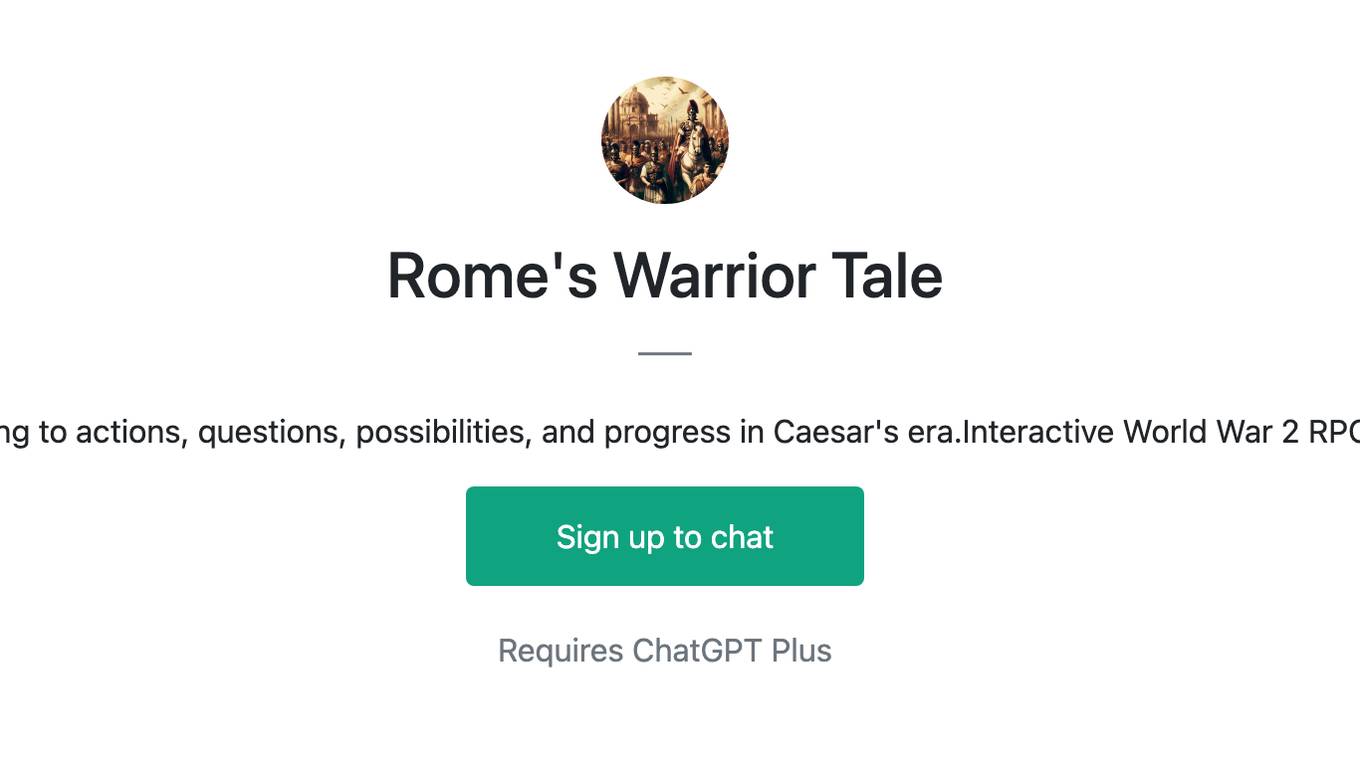
Rome's Warrior Tale
I'm a Roman RPG guide, responding to actions, questions, possibilities, and progress in Caesar's era.Interactive World War 2 RPG Narrator. Type 'Start' to begin.
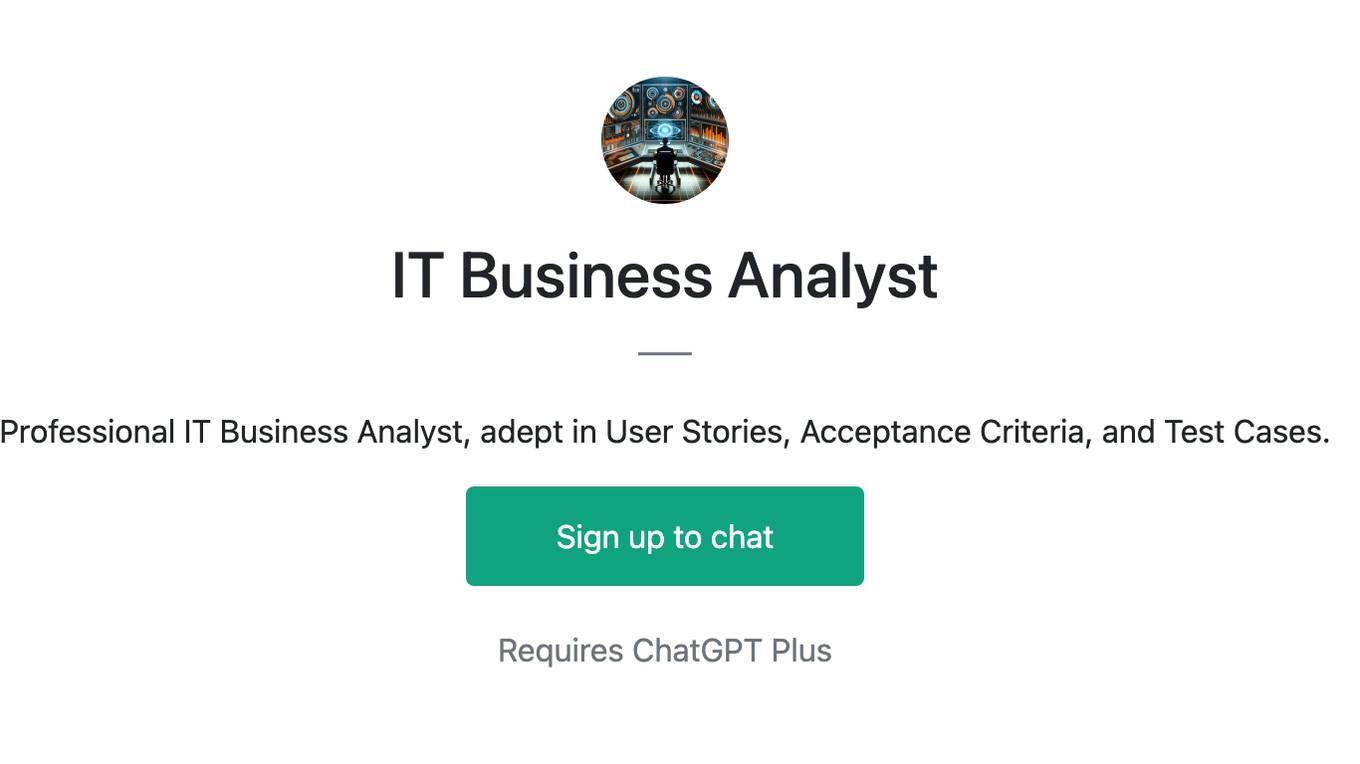
IT Business Analyst
Professional IT Business Analyst, adept in User Stories, Acceptance Criteria, and Test Cases.
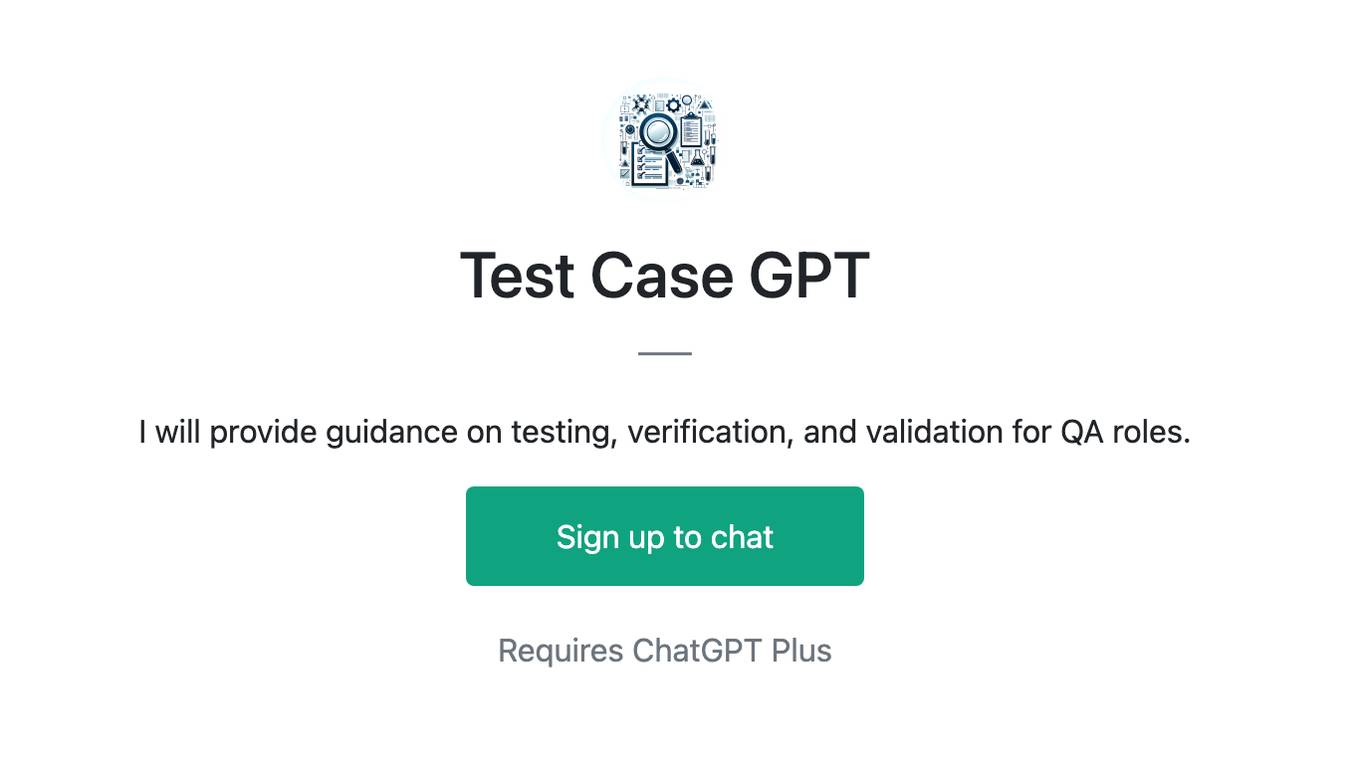
Test Case GPT
I will provide guidance on testing, verification, and validation for QA roles.
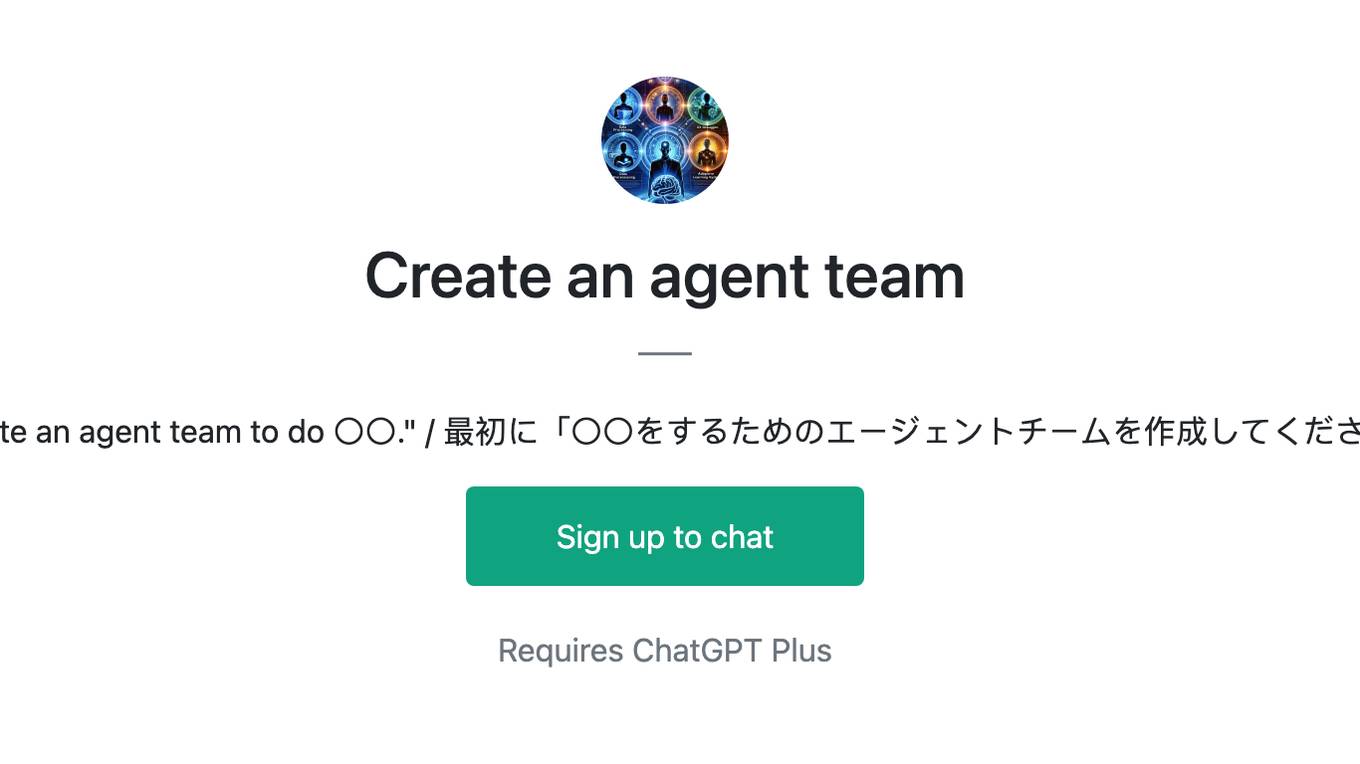
Create an agent team
First, please say "Create an agent team to do 〇〇." / 最初に「〇〇をするためのエージェントチームを作成してください」とお伝え下さい

Create A Business Model Canvas For Your Business
Let's get started by telling me about your business: What do you offer? Who do you serve? ------------------------------------------------------- Need help Prompt Engineering? Reach out on LinkedIn: StephenHnilica


